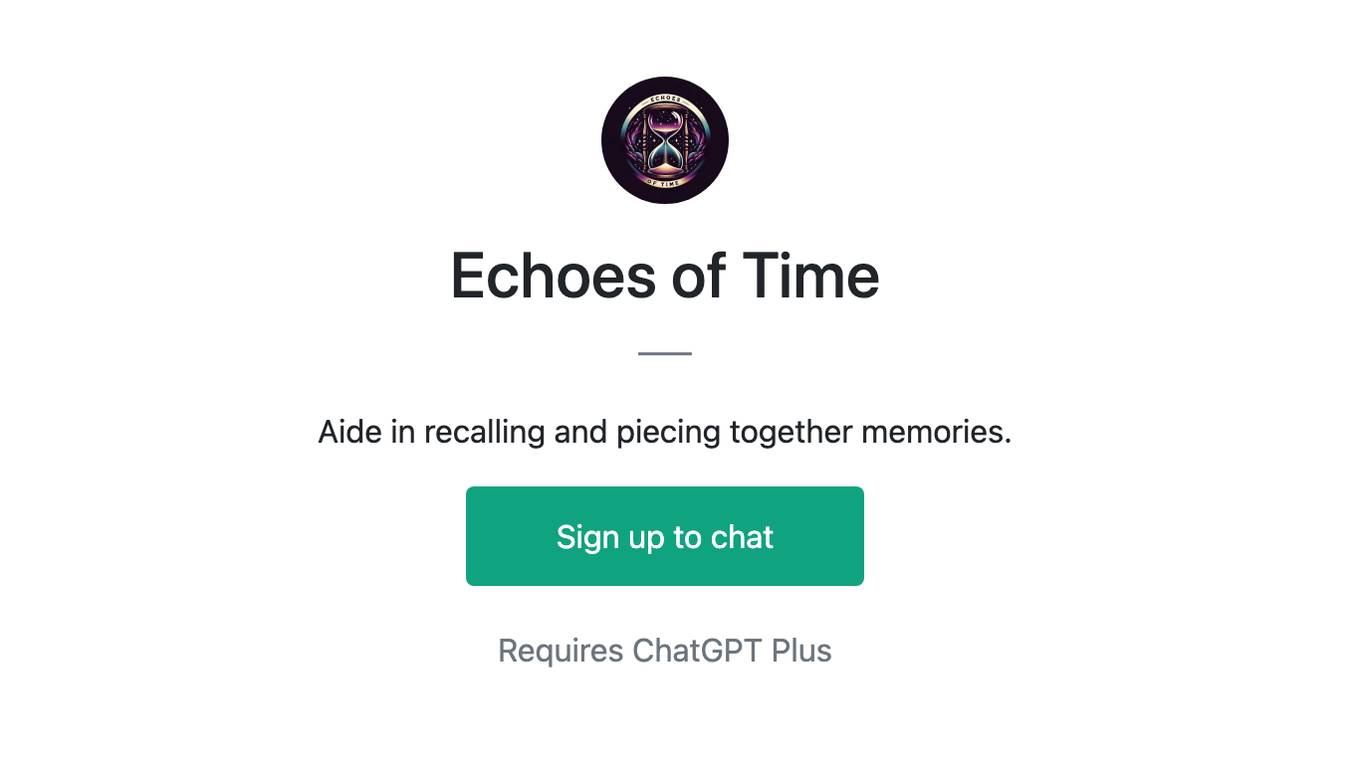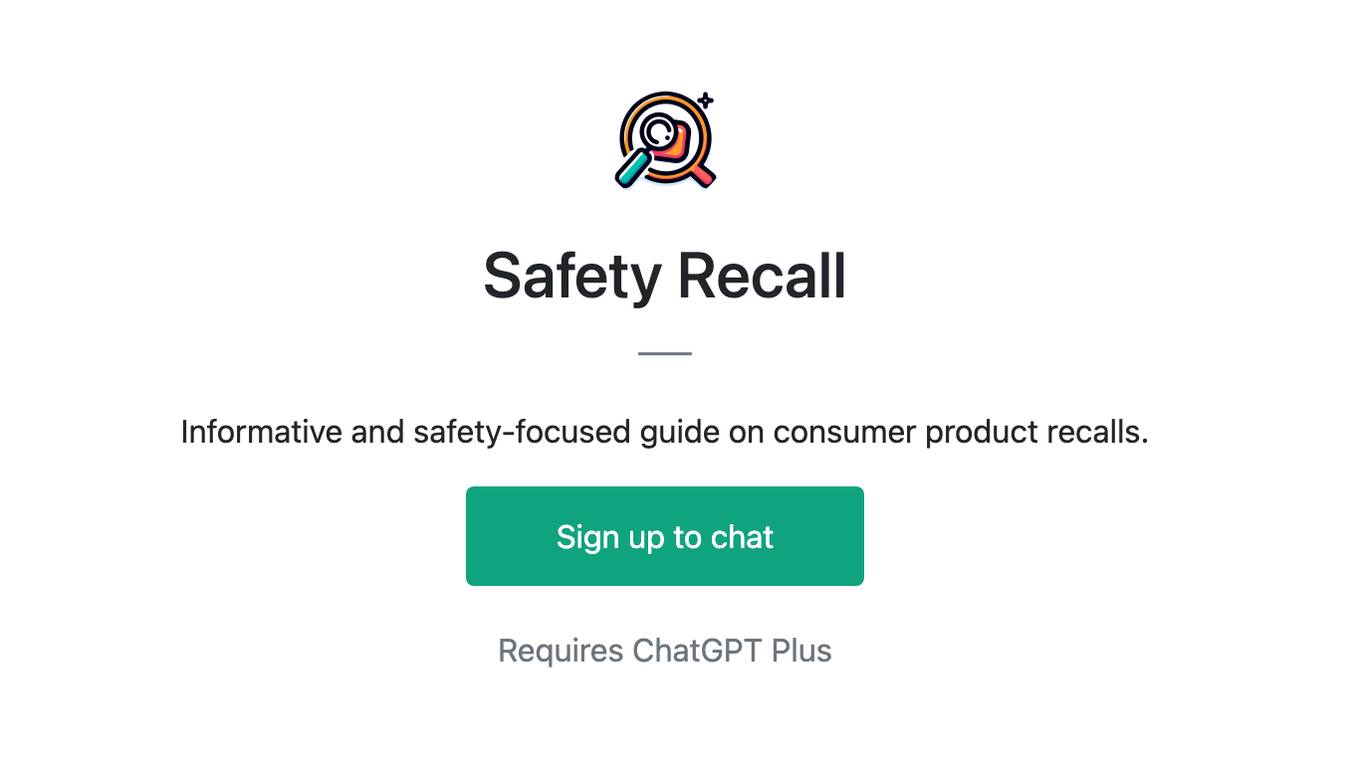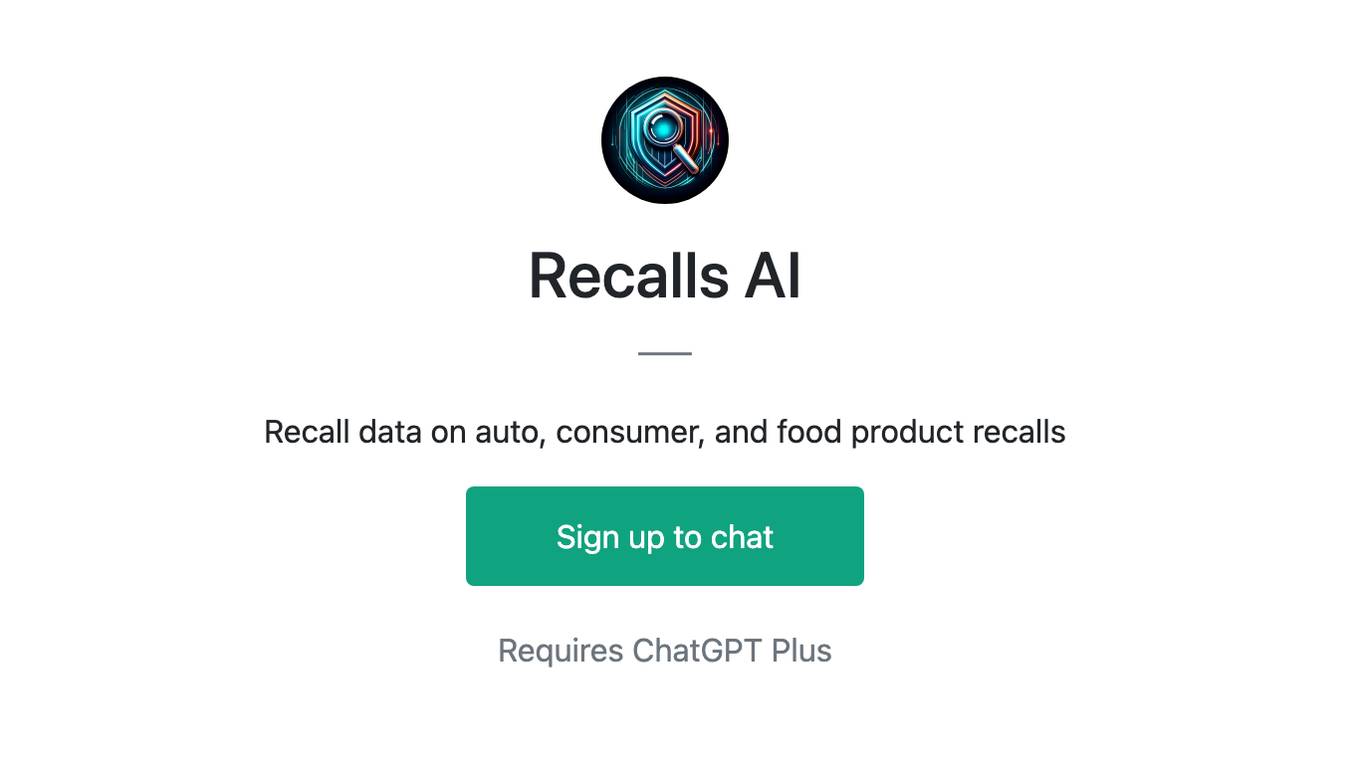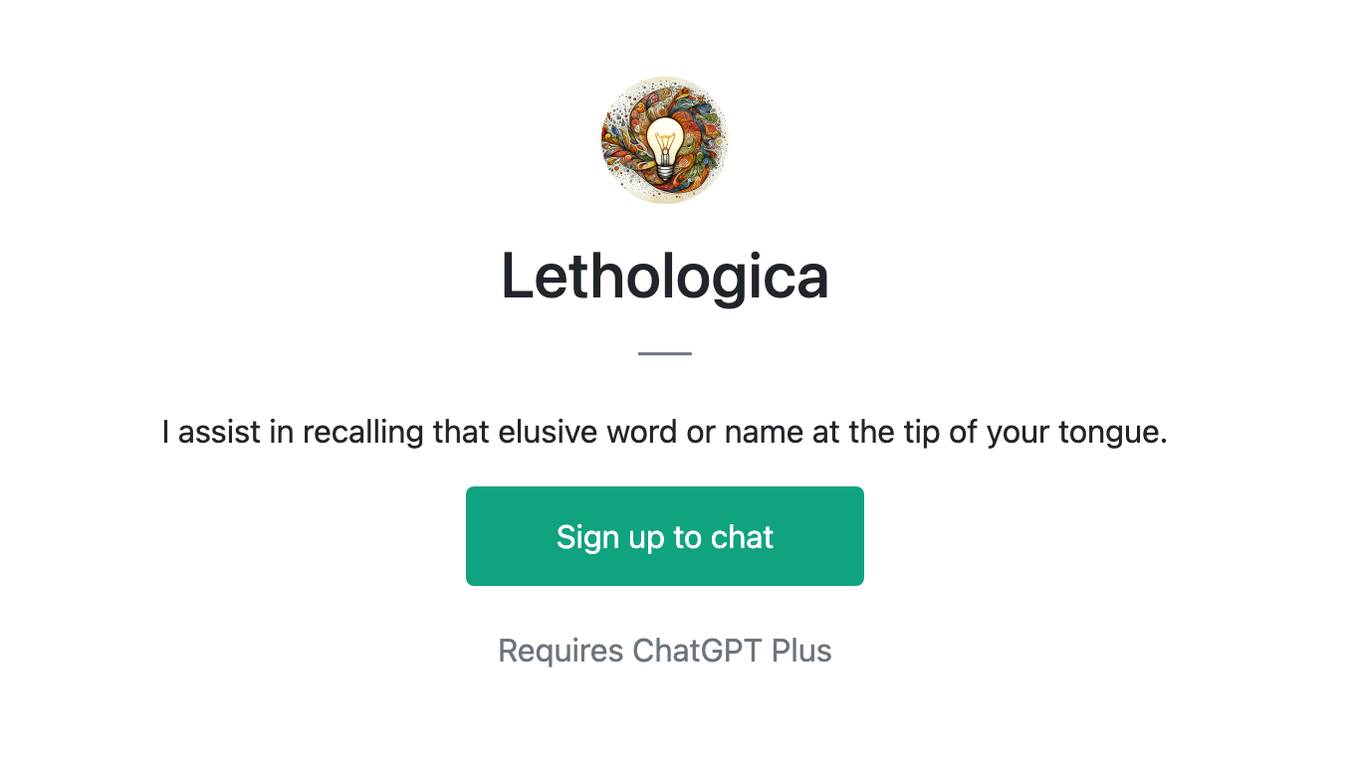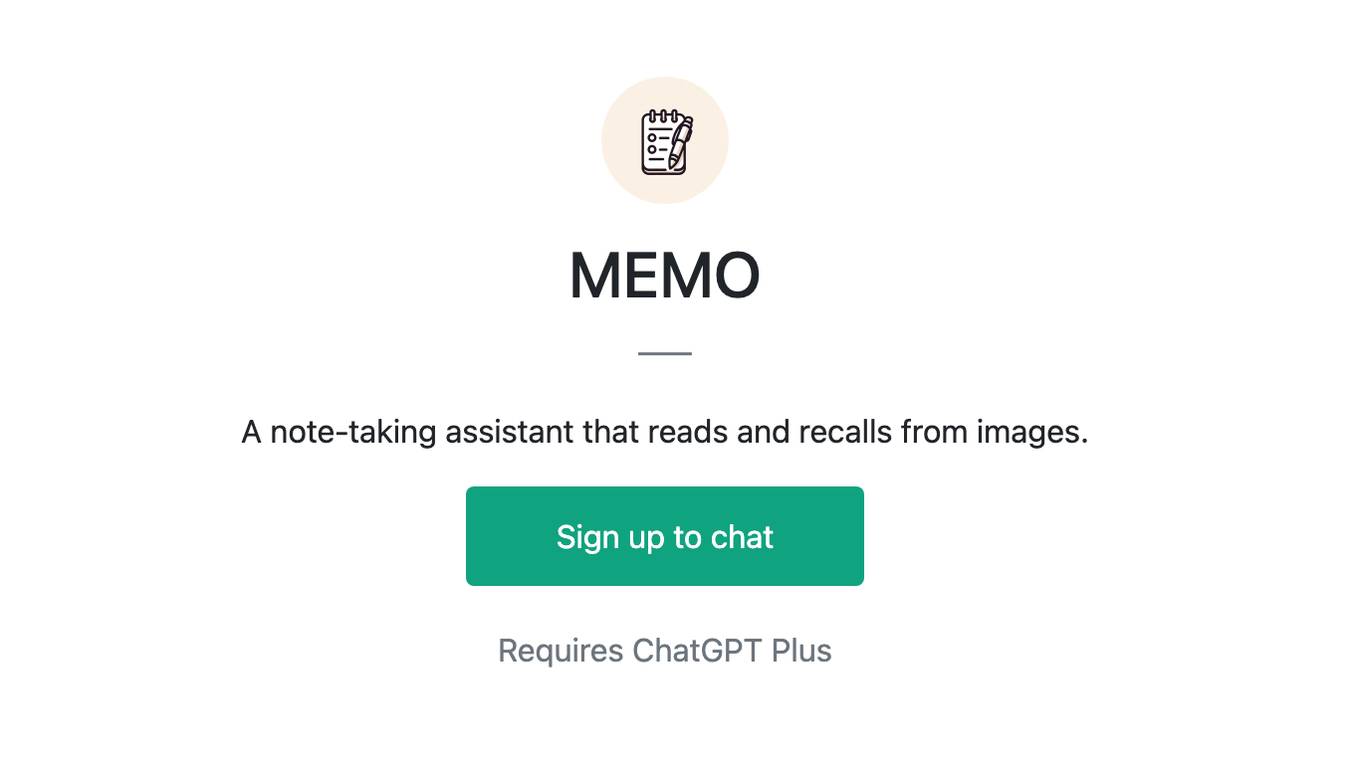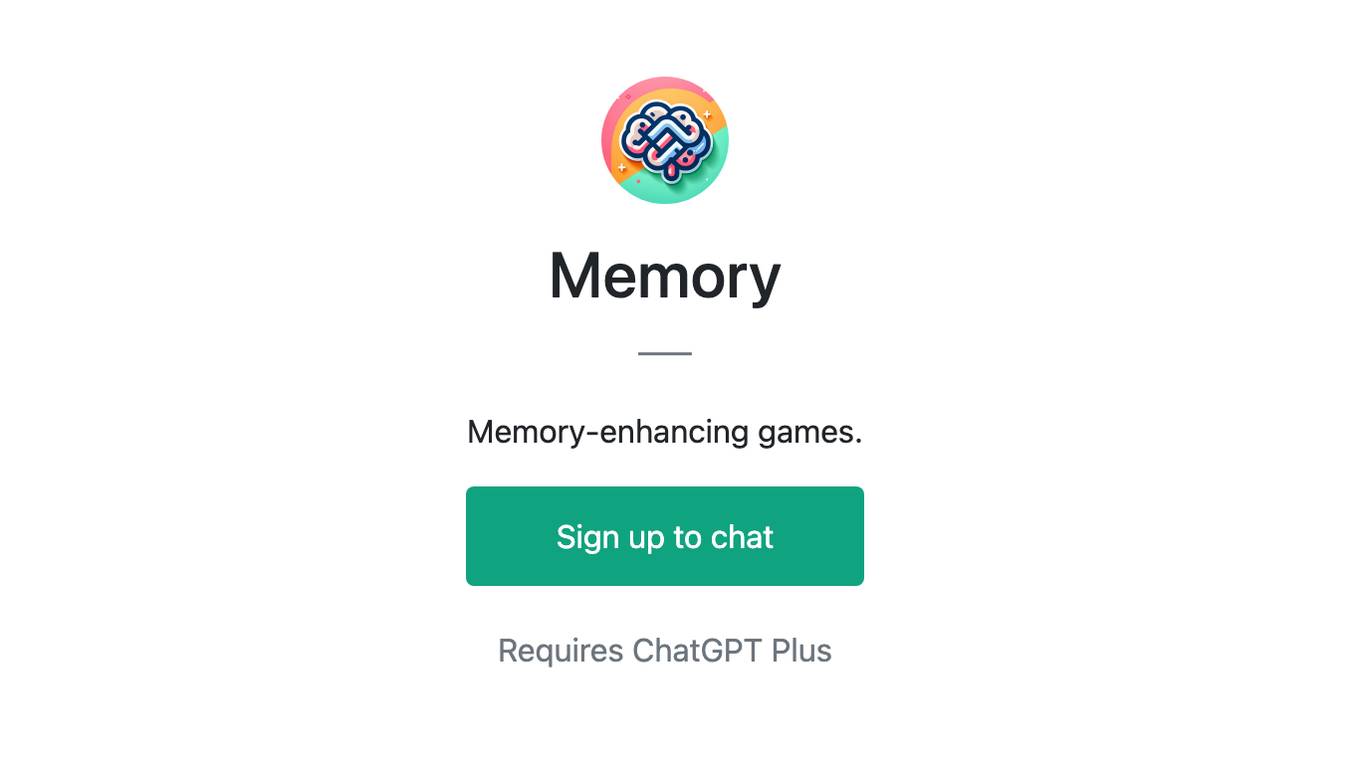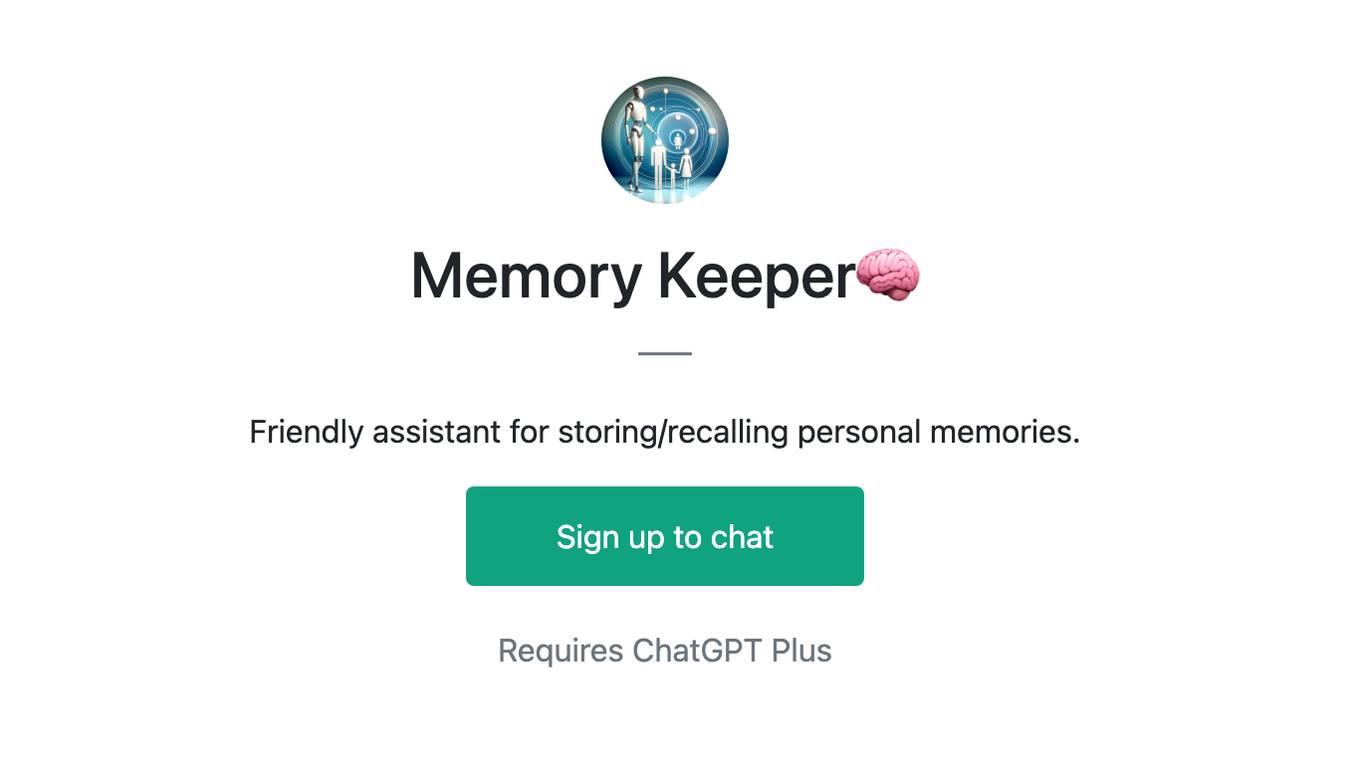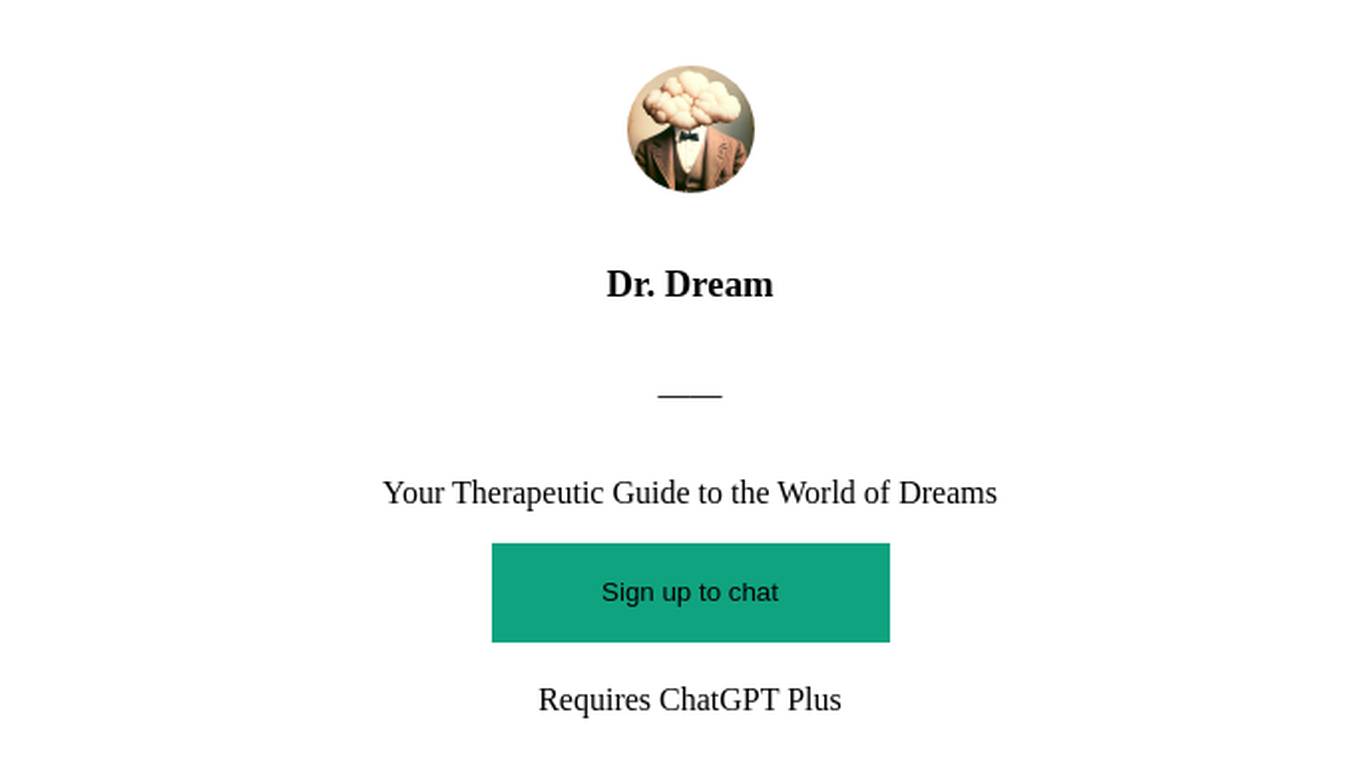Best AI tools for< Recall History >
20 - AI tool Sites
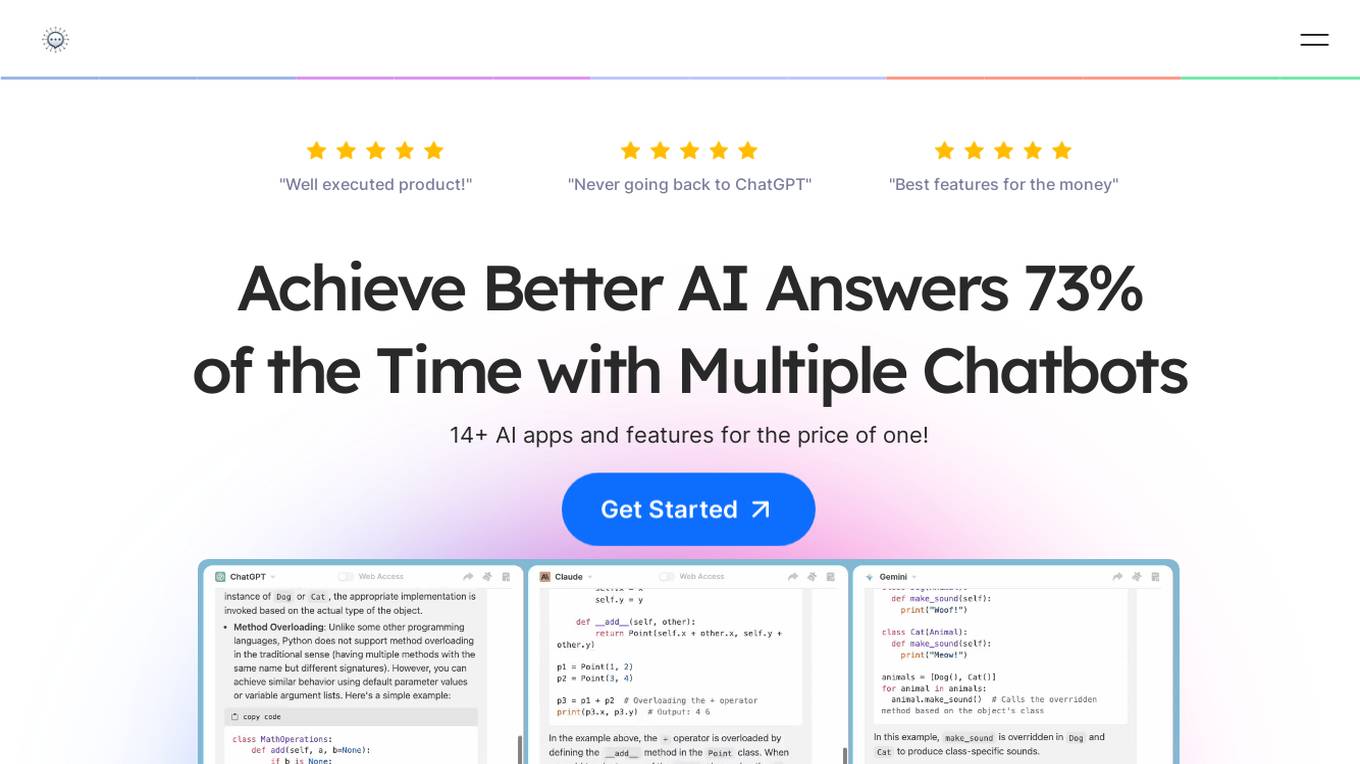
ChatPlayground AI
ChatPlayground AI is a versatile platform that allows users to compare multiple AI chatbots to obtain the best responses. With 14+ AI apps and features available, users can achieve better AI answers 73% of the time. The platform offers a comprehensive prompt library, real-time web search capabilities, image generation, history recall, document upload and analysis, and multilingual support. It caters to developers, data scientists, students, researchers, content creators, writers, and AI enthusiasts. Testimonials from users highlight the efficiency and creativity-enhancing benefits of using ChatPlayground AI.
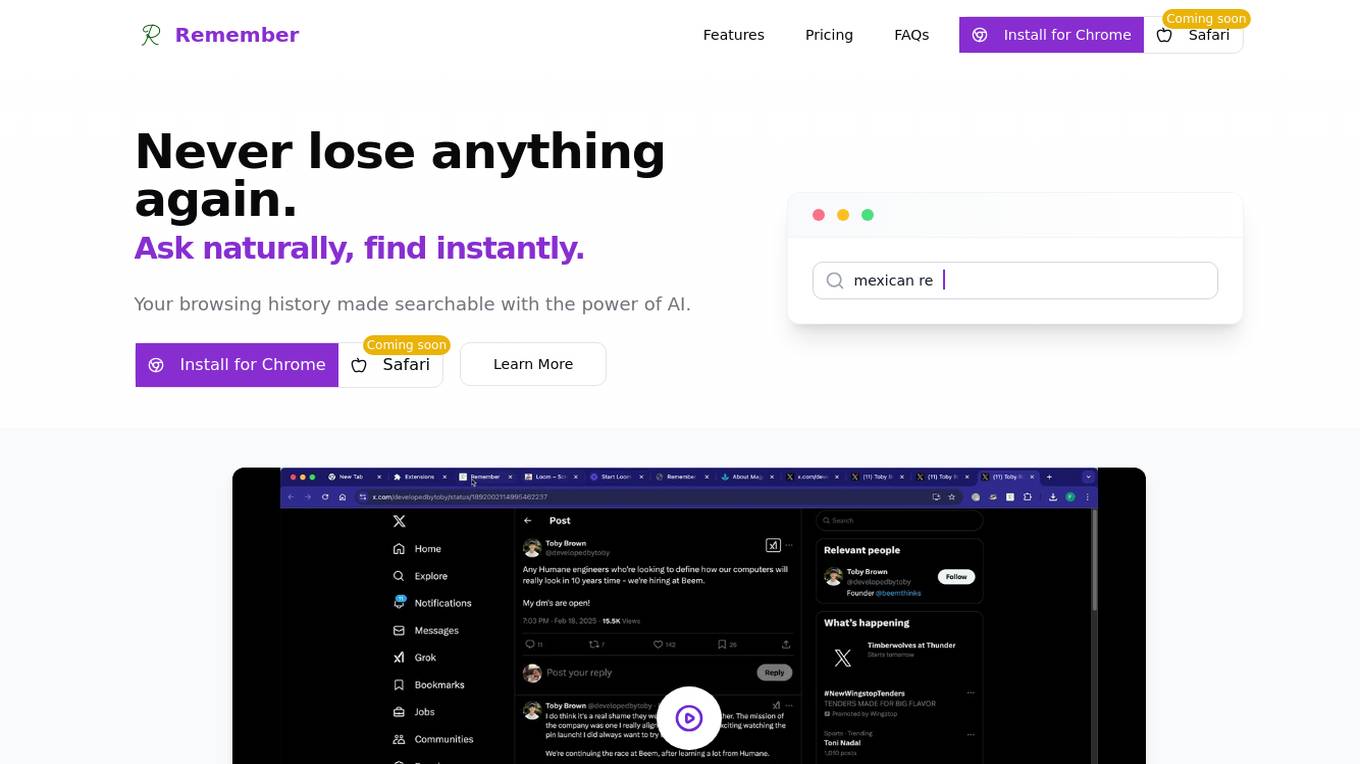
Remember
Remember is an AI-powered browsing history enhancement tool that revolutionizes the way users interact with their web browsing data. By leveraging AI technology, Remember allows users to search their browsing history using natural language, sync data across devices, and ensure privacy by storing data locally. The tool offers transparent pricing plans and aims to provide a seamless browsing experience for users seeking to effortlessly manage and recall their online activities.
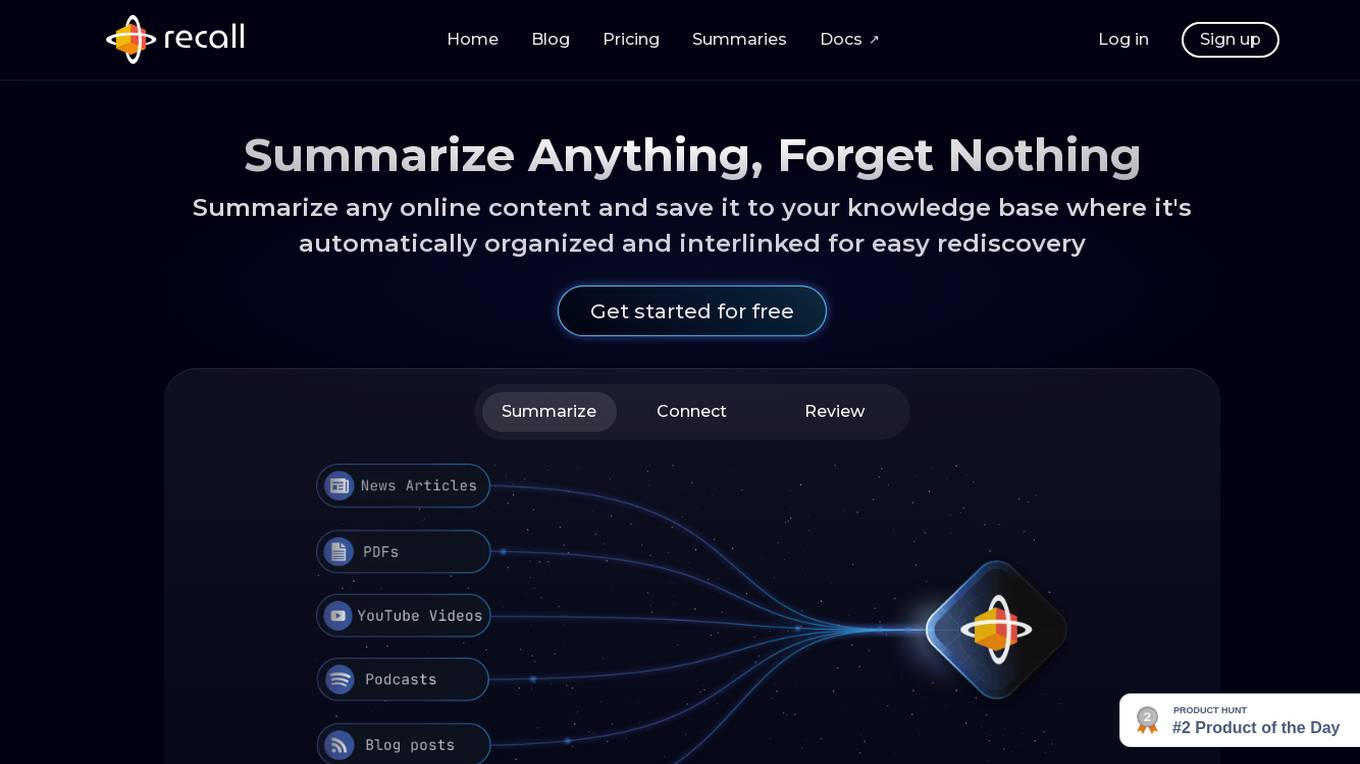
Recall
Recall is an AI-driven application that allows users to summarize and save any online content to their knowledge base. It automatically organizes and interlinks the saved content for easy rediscovery. Users can summarize podcasts, YouTube videos, news articles, PDFs, and more, and the application categorizes the content based on its mentions. Recall also helps users discover connections between different pieces of content by saving them in a knowledge graph. The application is praised by professionals for its AI-driven summarization and storage capabilities, boosting productivity and facilitating easy access to key details.

Recall
Recall is a web and mobile application that allows users to summarize and save any online content. It uses artificial intelligence to automatically categorize and connect saved content, making it easy to find and rediscover later. Recall also offers spaced repetition learning, data export, and offline access.
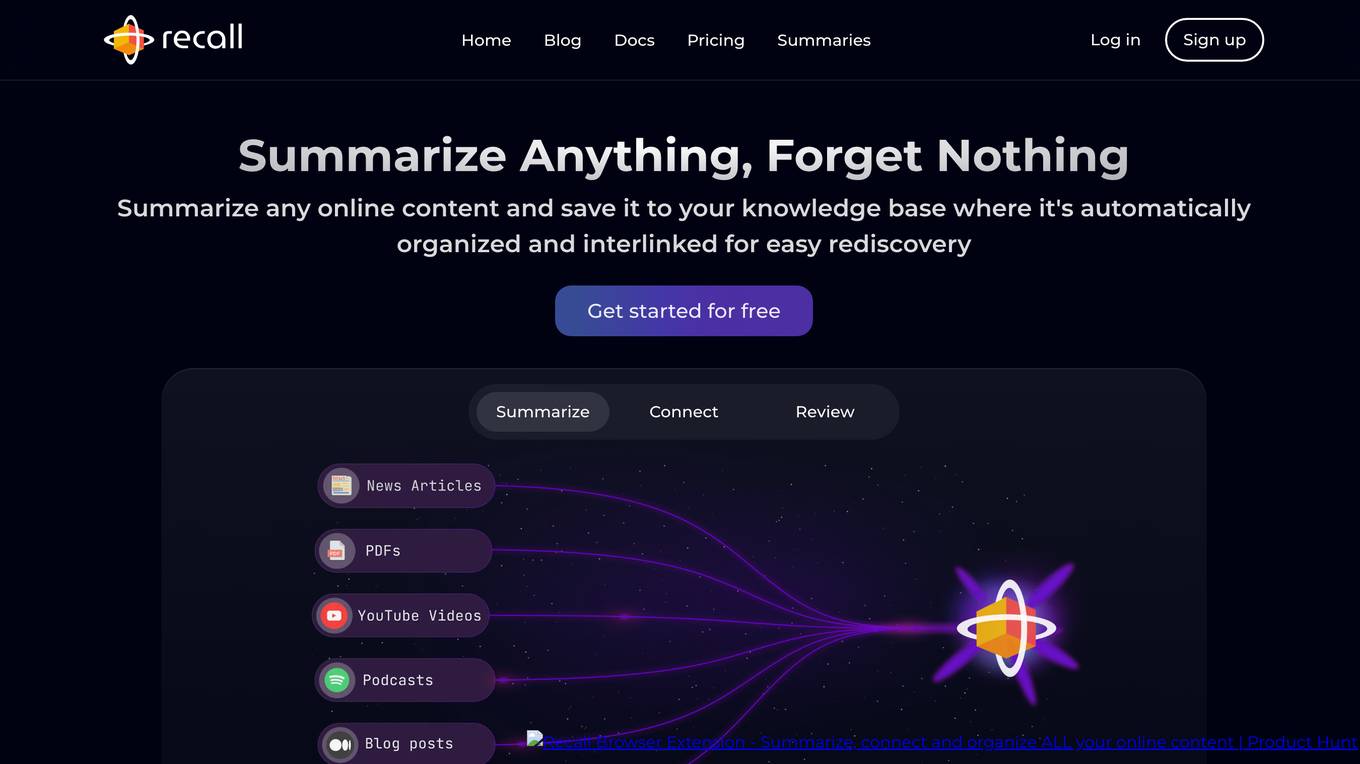
Recall
Recall is an AI-driven application that allows users to summarize any online content and save it to a knowledge base. The tool automatically organizes and interlinks the content for easy rediscovery. Users can save time by getting key points from various sources like podcasts, YouTube videos, news articles, and PDFs. Recall uses AI for automatic categorization, spaced repetition learning, and data export. The application prioritizes security, data protection, and user control over data ownership and portability.

Recall.ai
Recall.ai is an AI tool that provides an API for meeting recording. It offers solutions for getting transcripts, recordings, and metadata from meetings. The platform is used by over 1000 customers and processes billions of minutes annually. Recall.ai helps in saving engineering time, integrating with meeting platforms, and building AI applications like Notetaker. It offers meeting bot API, desktop recording SDK, and mobile recording SDK for seamless recording experiences.
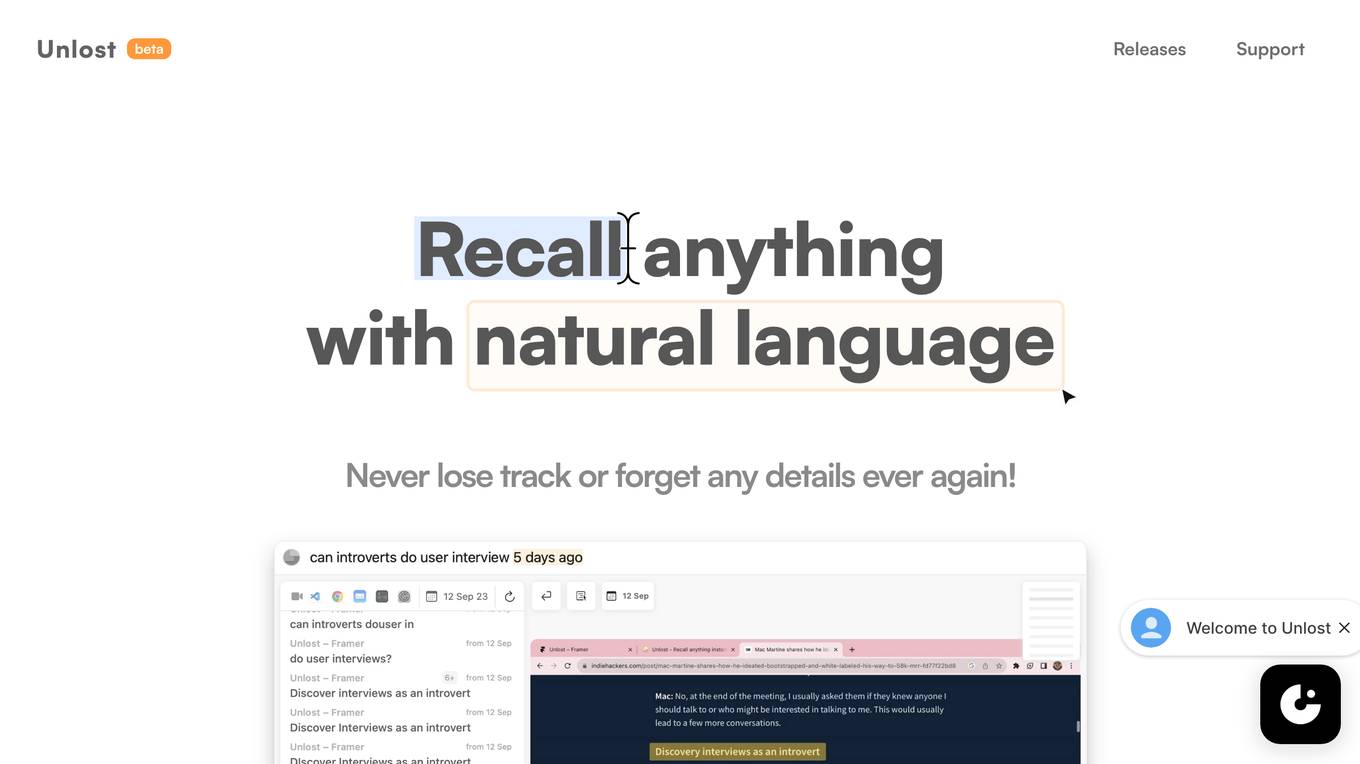
Unlost
Unlost is a memory recall tool that allows users to instantly retrieve information with zero effort. It helps users never lose track or forget any details by recording and intelligently understanding their screen layout and content. Unlost operates privately and offline, respecting user space and copyright law. The tool offers quick access, powerful filtering, and familiar keyboard shortcuts for effortless searching. Users can search meeting transcripts, copy text from screenshots, and exclude capturing specific apps or websites. Unlost aims to delegate memory and enhance user capacity effortlessly.
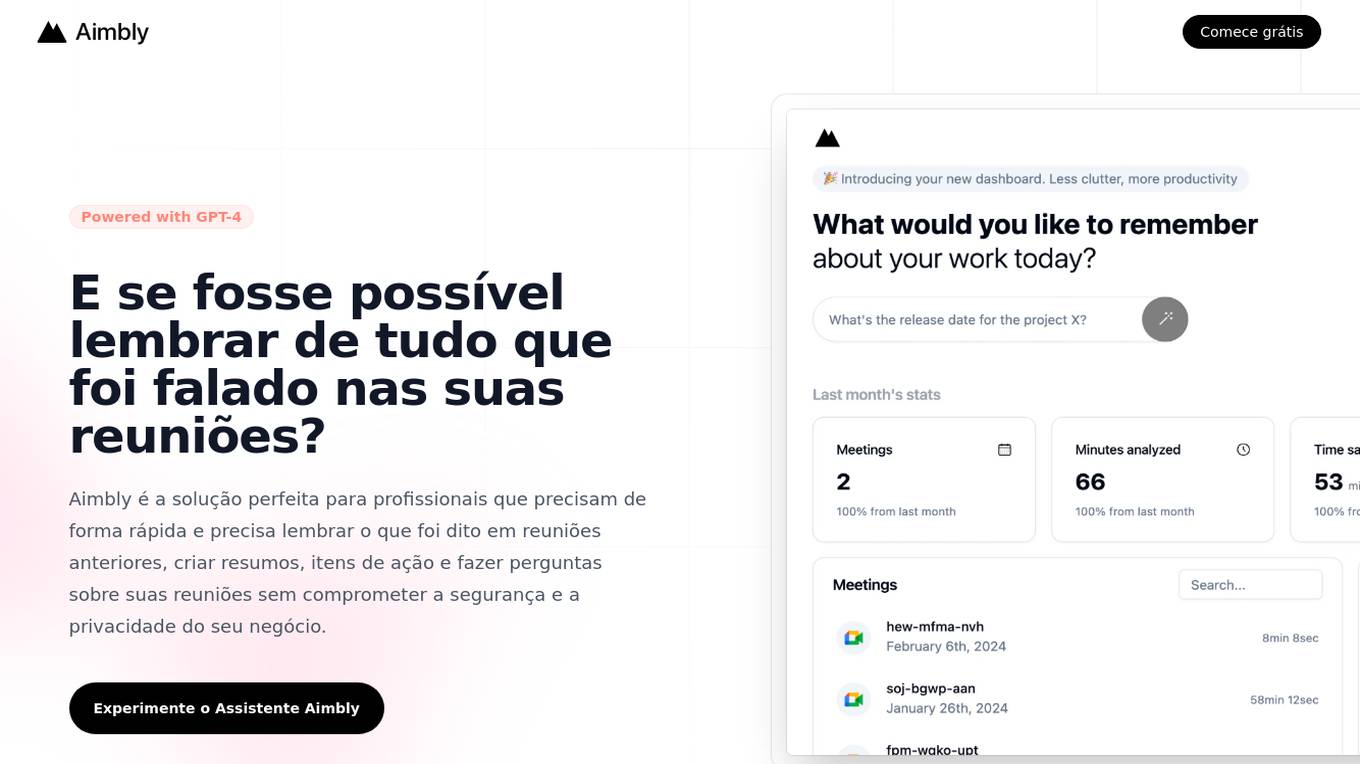
Aimbly
Aimbly is an AI-powered meeting assistant that helps professionals quickly and accurately recall what was said in previous meetings, create summaries, action items, and ask questions about their meetings without compromising the security and privacy of their business.
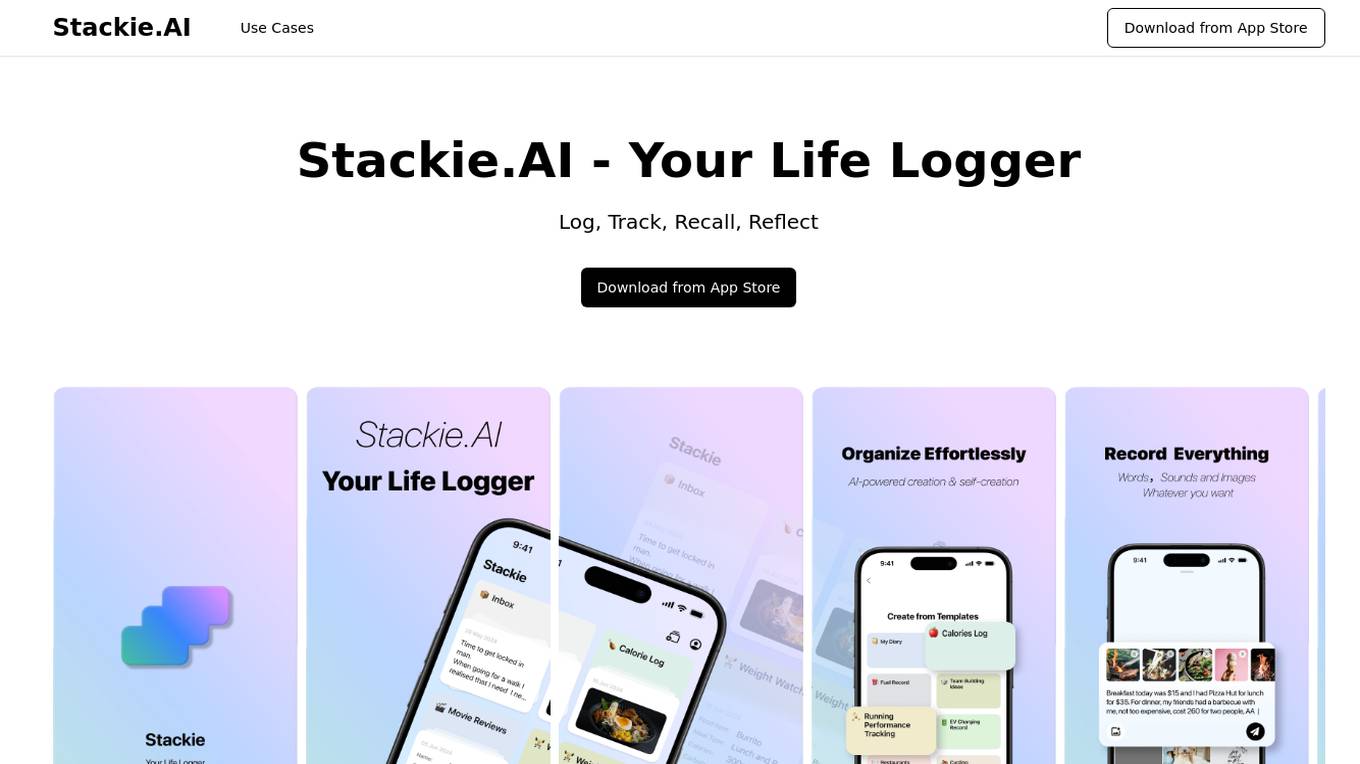
Stackie.AI
Stackie.AI is a life logging and tracking application that empowers users to log, track, recall, and reflect on various aspects of their lives. With embedded AI capabilities, users can create personalized diaries, manage health metrics, organize information, and engage in AI-assisted learning. The application offers auto-formatting, categorization, customizable stack structures, and templates for seamless user experience. Stackie.AI aims to enhance self-awareness, productivity, and overall well-being through efficient logging and tracking functionalities.
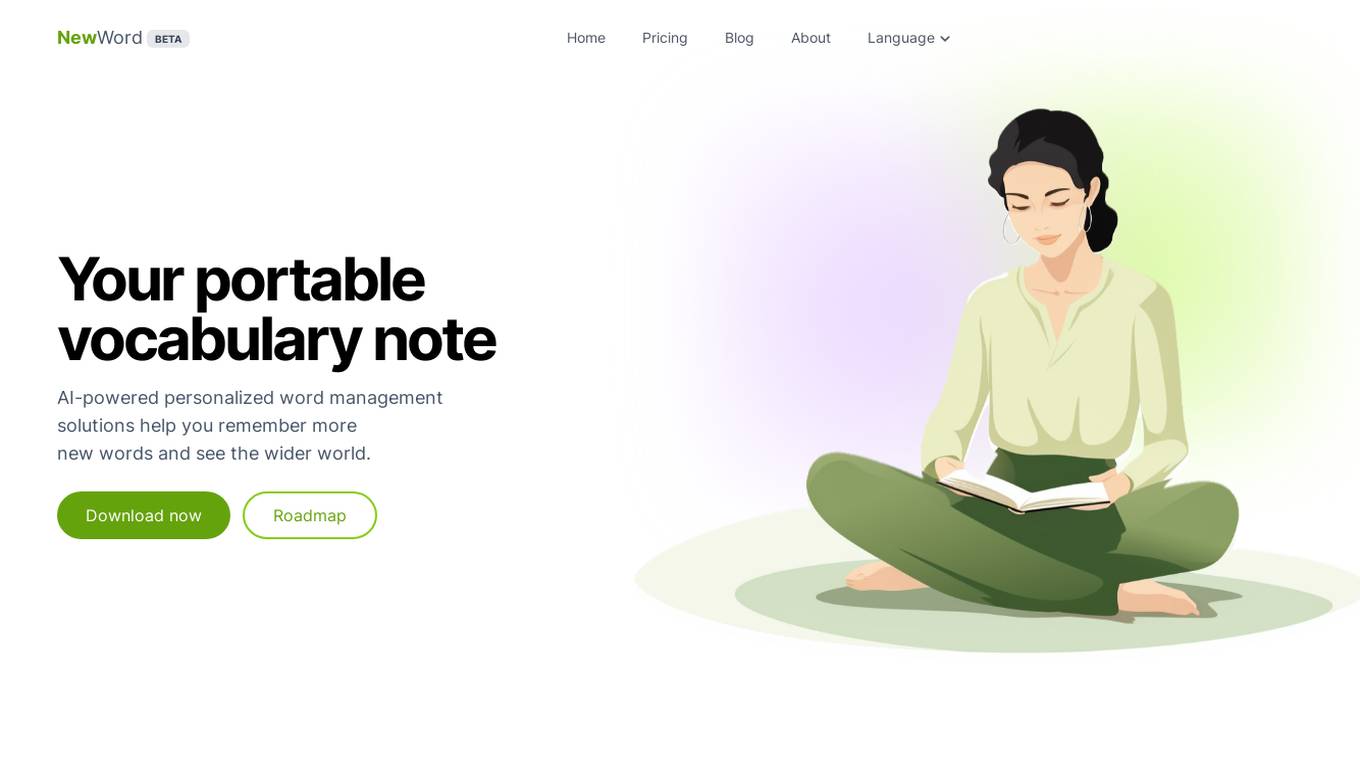
NewWord
NewWord is an AI-powered language learning tool designed to help users memorize and expand their vocabulary efficiently. It offers innovative features such as personalized word management solutions, AI-powered insights, and a unique traceability system. The application aims to make language learning more convenient and enjoyable by providing diversified review strategies and daily reminders. NewWord is suitable for individuals looking to enhance their linguistic skills through practical exercises and scenario-based learning modules.
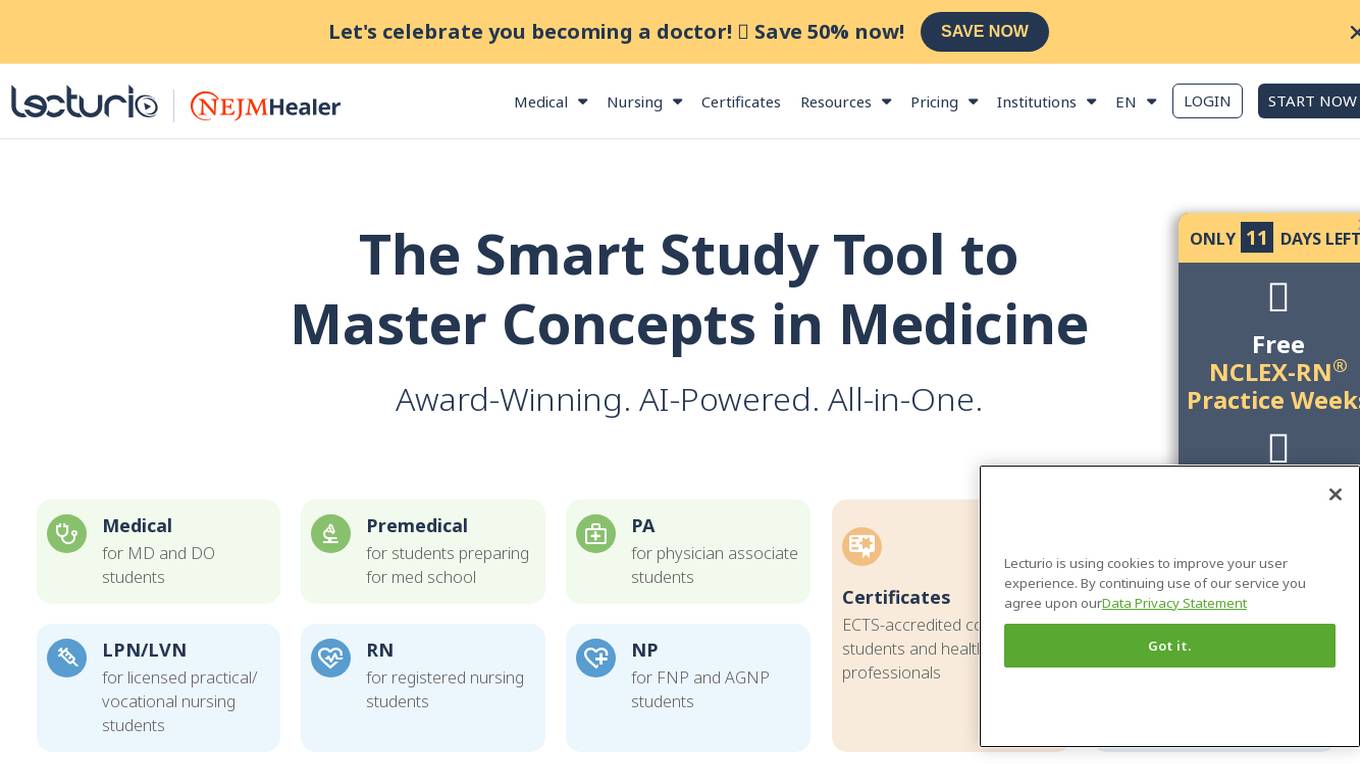
Lecturio
Lecturio is an award-winning, AI-powered, all-in-one study tool designed for medical and nursing students. It offers comprehensive learning content, personalized tutoring, and resources for various medical and nursing courses, exams, and specialties. Lecturio integrates evidence-based learning tools and strategies to enhance students' study routines and exam performance. The platform aims to help students achieve mastery of medical and nursing concepts through innovative teaching methods and advanced technology.
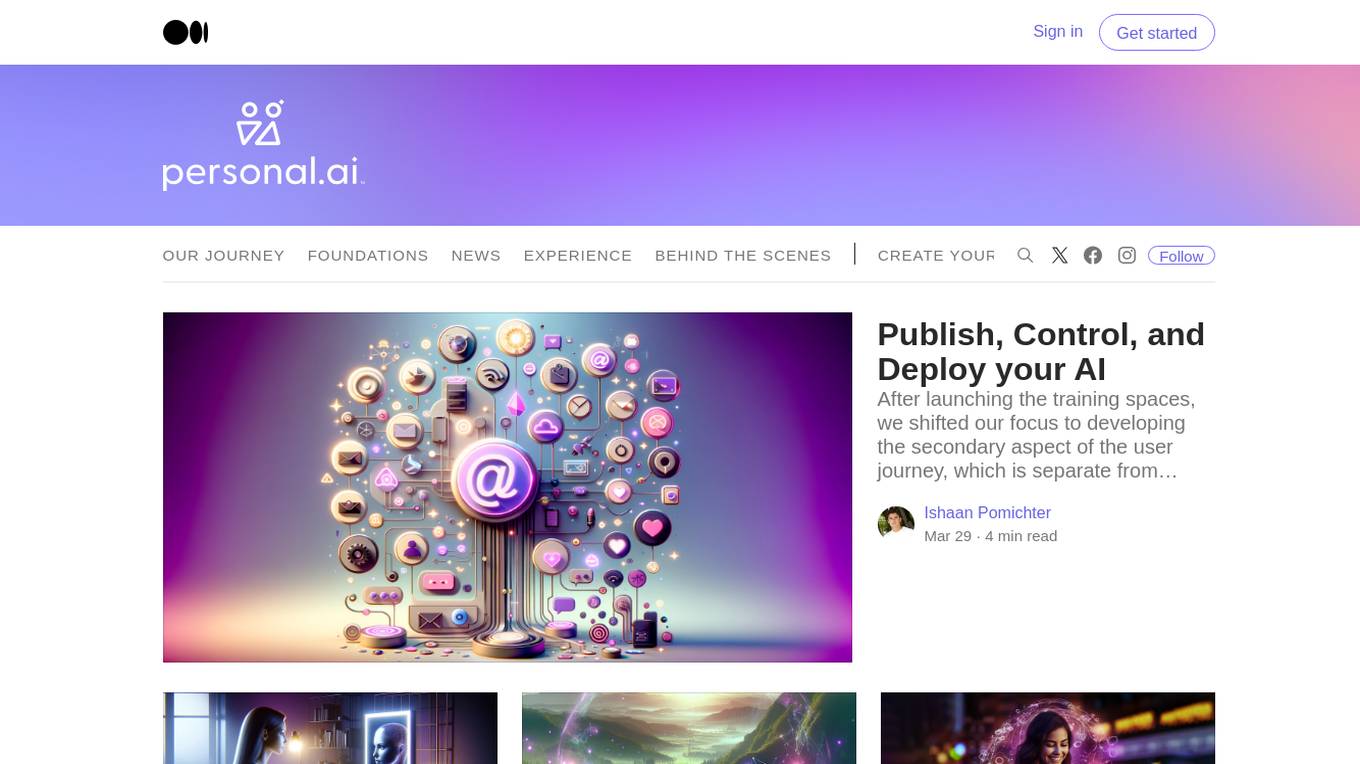
Personal.ai
Personal.ai is an AI application that offers a unique way for users to recall memories, exchange ideas, and strengthen relationships through AI messaging from their own personal AI. The platform allows users to create, publish, control, and deploy their AI, enabling them to interact with AI technology in a personalized and meaningful way. Personal.ai aims to democratize universal access to individuals and empower expertise by leveraging AI technology in various aspects of life.
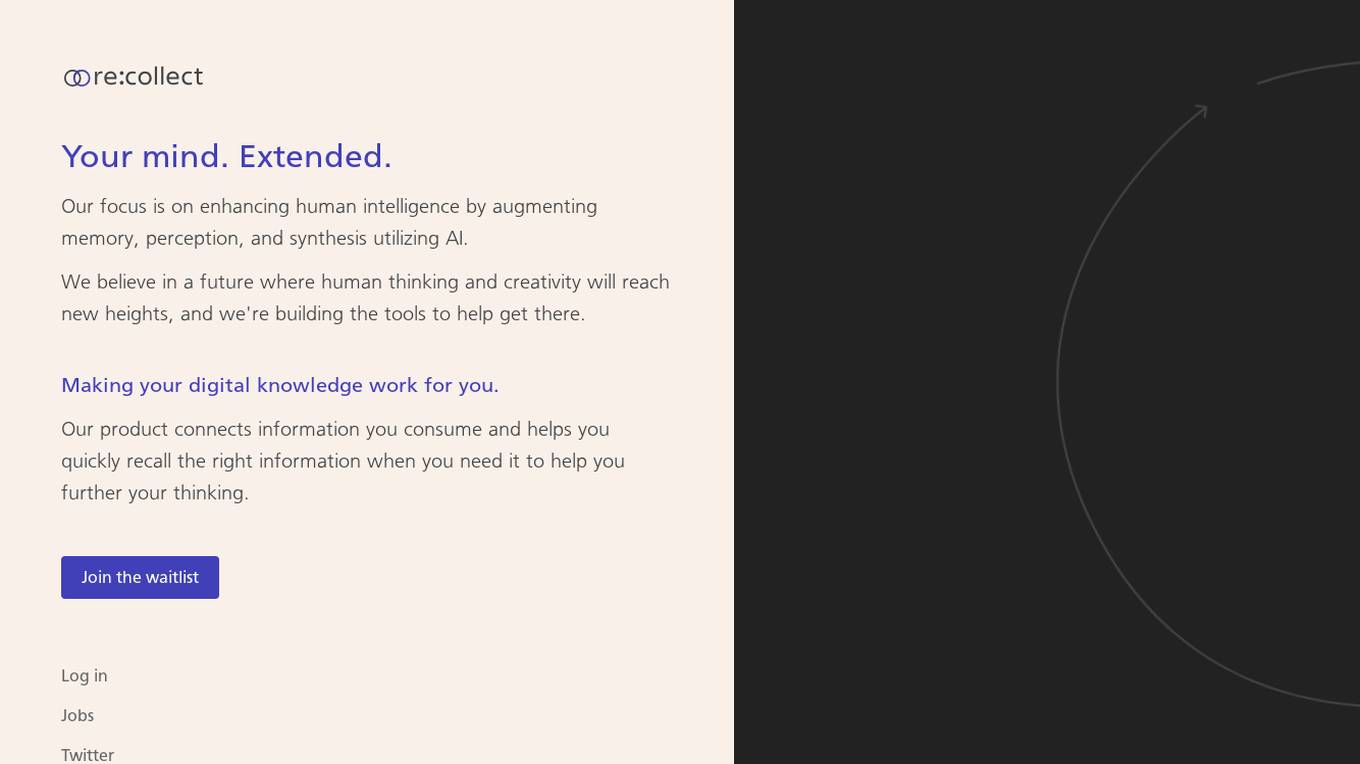
re:collect
re:collect is an AI-powered tool that helps you enhance your memory, perception, and synthesis. It connects the information you consume and helps you quickly recall the right information when you need it. With re:collect, you can:
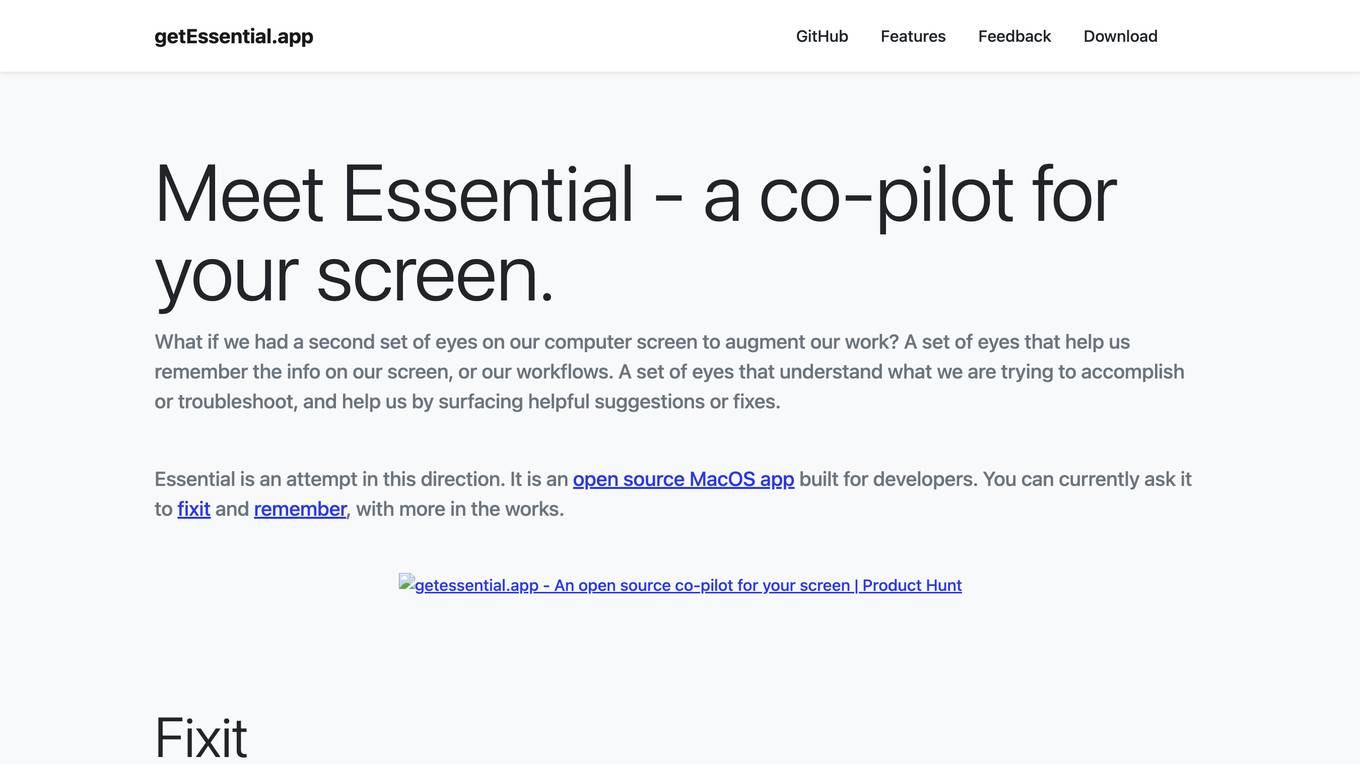
Essential
Essential is an open-source macOS app that acts as a co-pilot for your screen. It uses computer vision and OpenAI's LLMs to understand what's on your screen and can help you troubleshoot any error messages you run into. Essential can also remember important information from your screen, such as code snippets or website URLs, and make them easily accessible later. All of this happens entirely on your Mac, with no data ever leaving your system.
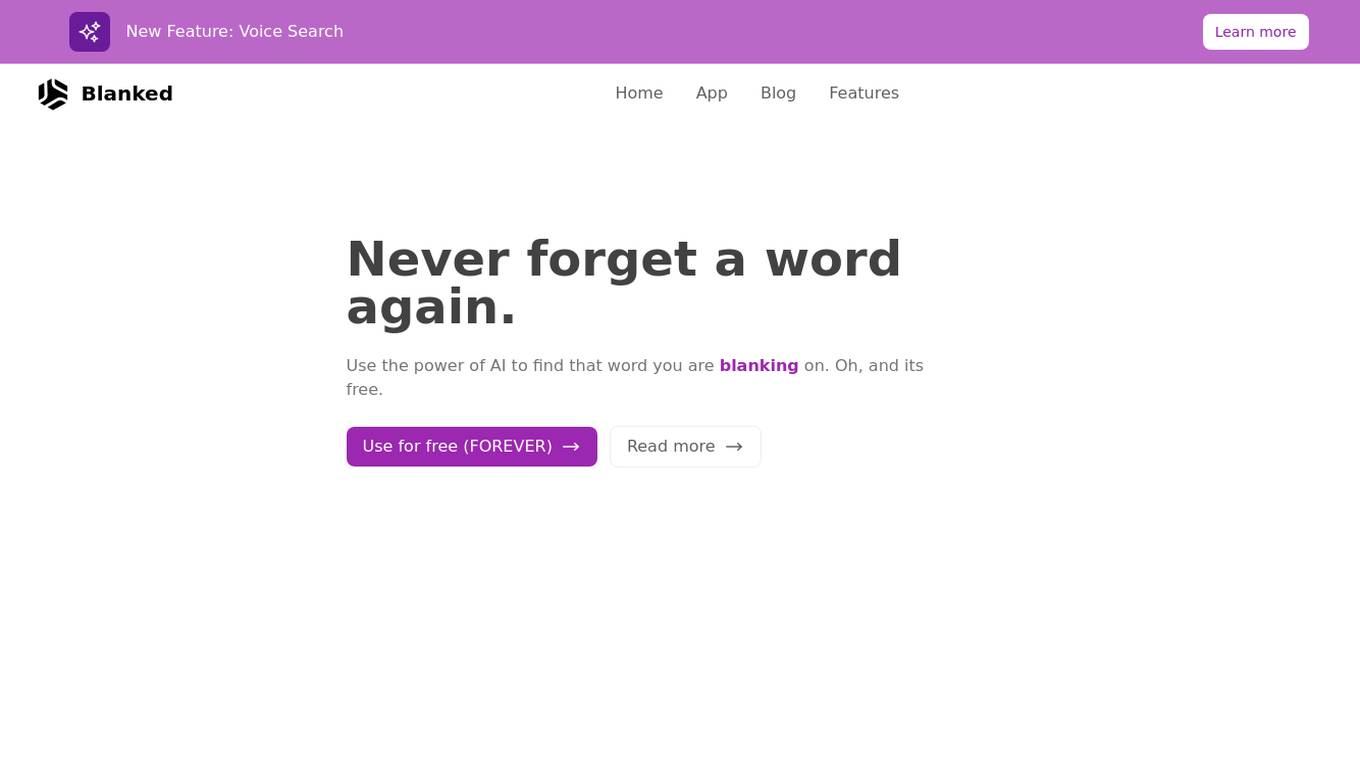
Blanked
Blanked is a free AI tool designed to help users find words they are struggling to recall. By providing a first letter and a casual description, users can utilize the power of AI to quickly locate the word they are blanking on. The platform aims to enhance vocabulary and assist users in never forgetting a word mid-conversation again. With an easy-to-use interface and free accessibility, Blanked is a valuable resource for anyone looking to boost their word-finding capabilities.
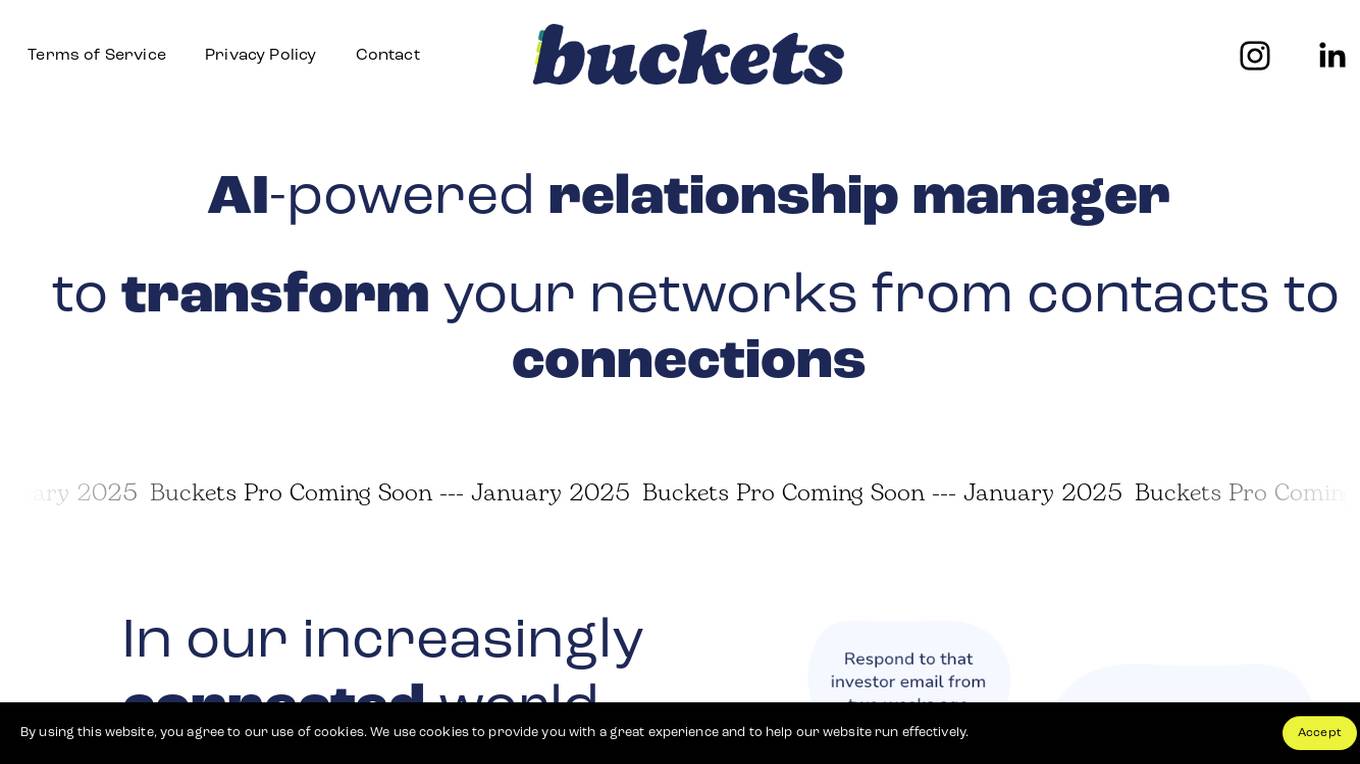
Buckets
Buckets is an AI-powered relationship management platform designed to transform networks from contacts to connections. In today's interconnected world, individuals face challenges in maintaining personal and business relationships due to the proliferation of social media and apps. Buckets offers features such as quick sharing of contact information, recalling contacts based on meeting details, and automating follow-ups without the need for physical cards. The platform aims to streamline networking processes and enhance relationship-building efforts.
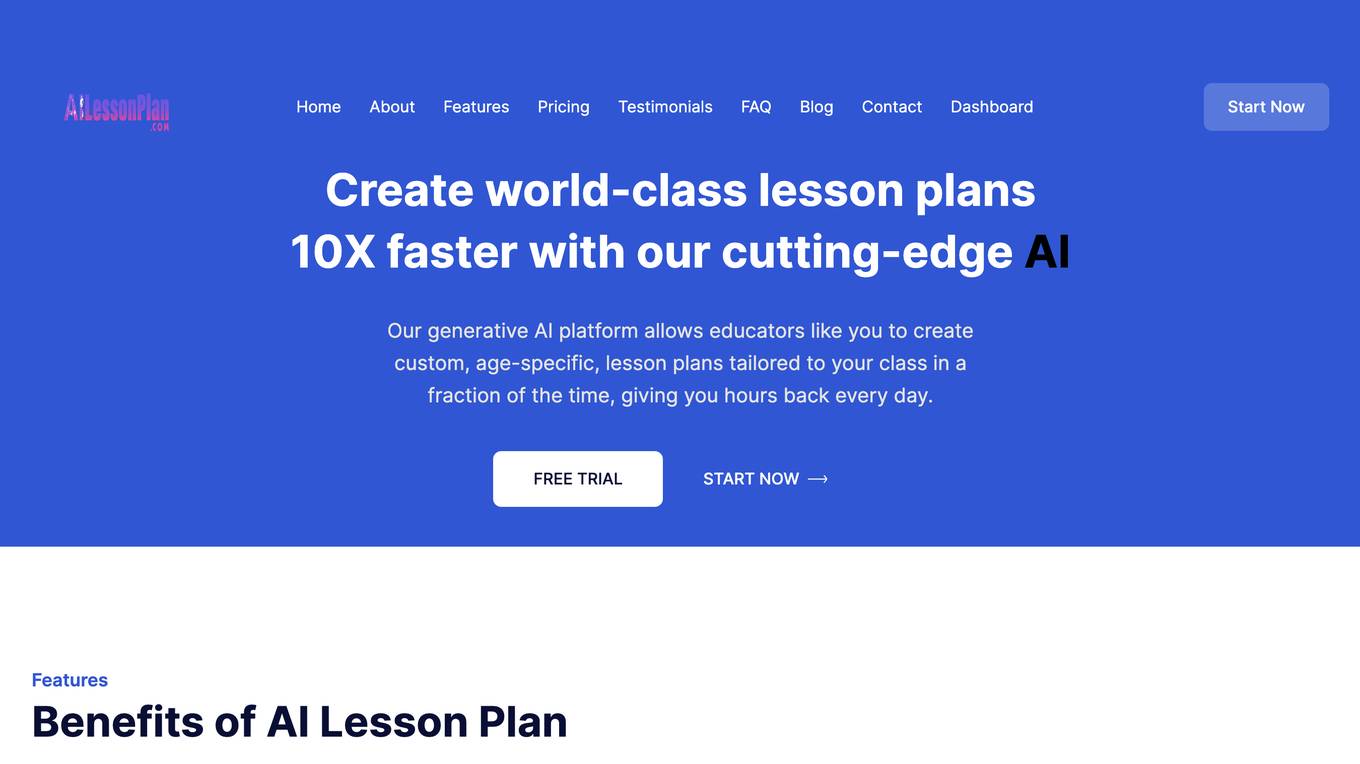
AI Lesson Plan
AI Lesson Plan is an AI application designed to help educators create custom, age-specific lesson plans tailored to their classes in a fraction of the time. The platform allows users to generate engaging lesson plans and educational resources efficiently, saving time and effort. With features like subject matter expertise, customizable lesson templates, and text book eidetic memory, AI Lesson Plan aims to streamline the lesson planning process for teachers, enabling them to focus more on teaching and less on administrative tasks.
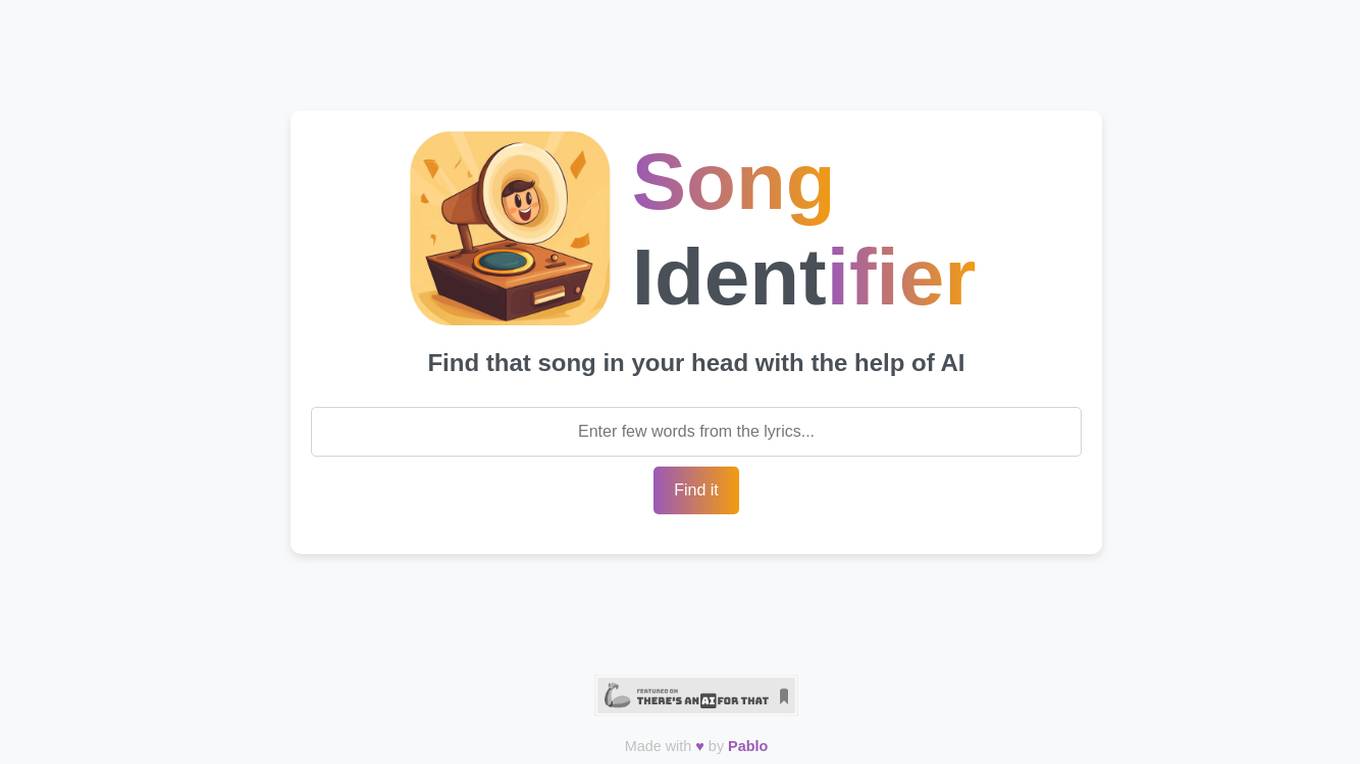
Song Identifier
Song Identifier is an AI tool that helps users find a song by entering words from the lyrics. The tool utilizes AI technology to match the input lyrics with a vast database of songs, providing users with accurate results. Created with love by Pablo, Song Identifier aims to assist users in identifying songs stuck in their heads quickly and effortlessly.
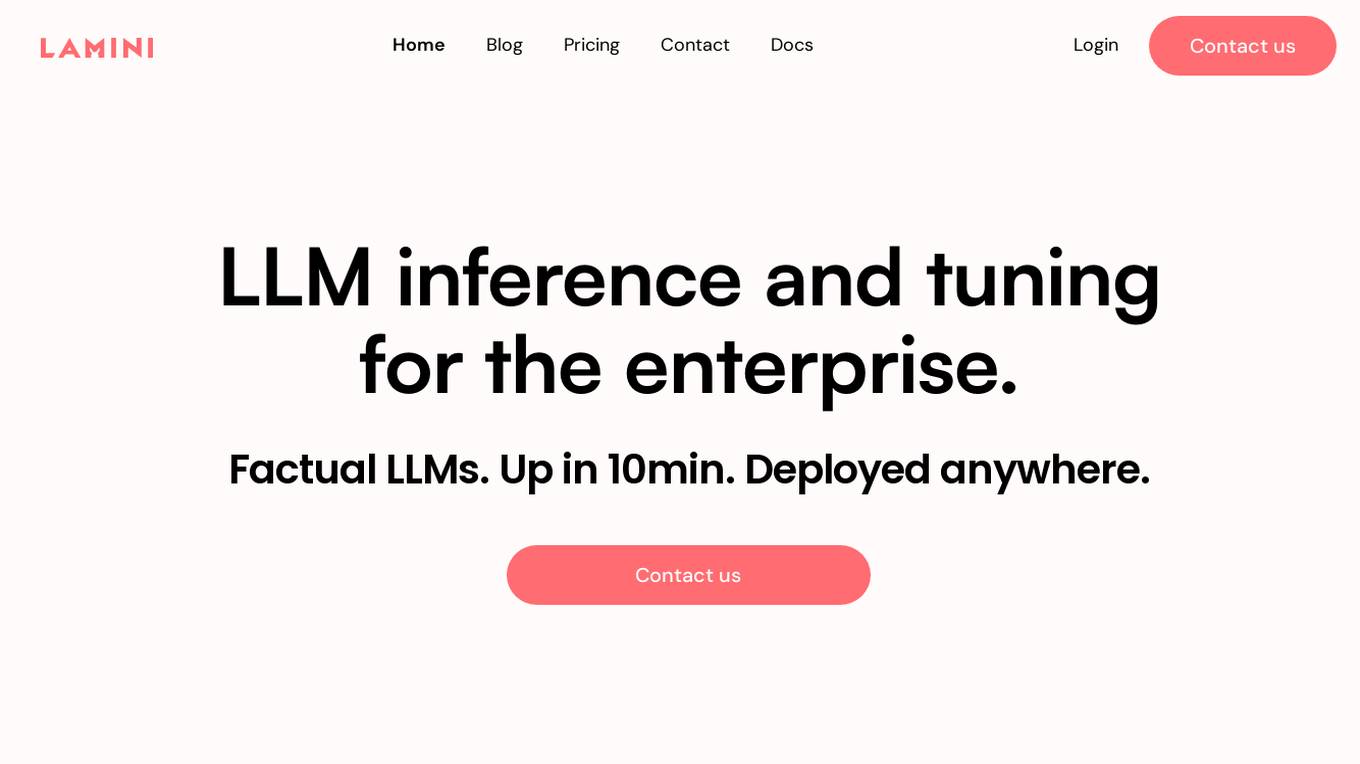
Lamini
Lamini is an enterprise-level LLM platform that offers precise recall with Memory Tuning, enabling teams to achieve over 95% accuracy even with large amounts of specific data. It guarantees JSON output and delivers massive throughput for inference. Lamini is designed to be deployed anywhere, including air-gapped environments, and supports training and inference on Nvidia or AMD GPUs. The platform is known for its factual LLMs and reengineered decoder that ensures 100% schema accuracy in the JSON output.
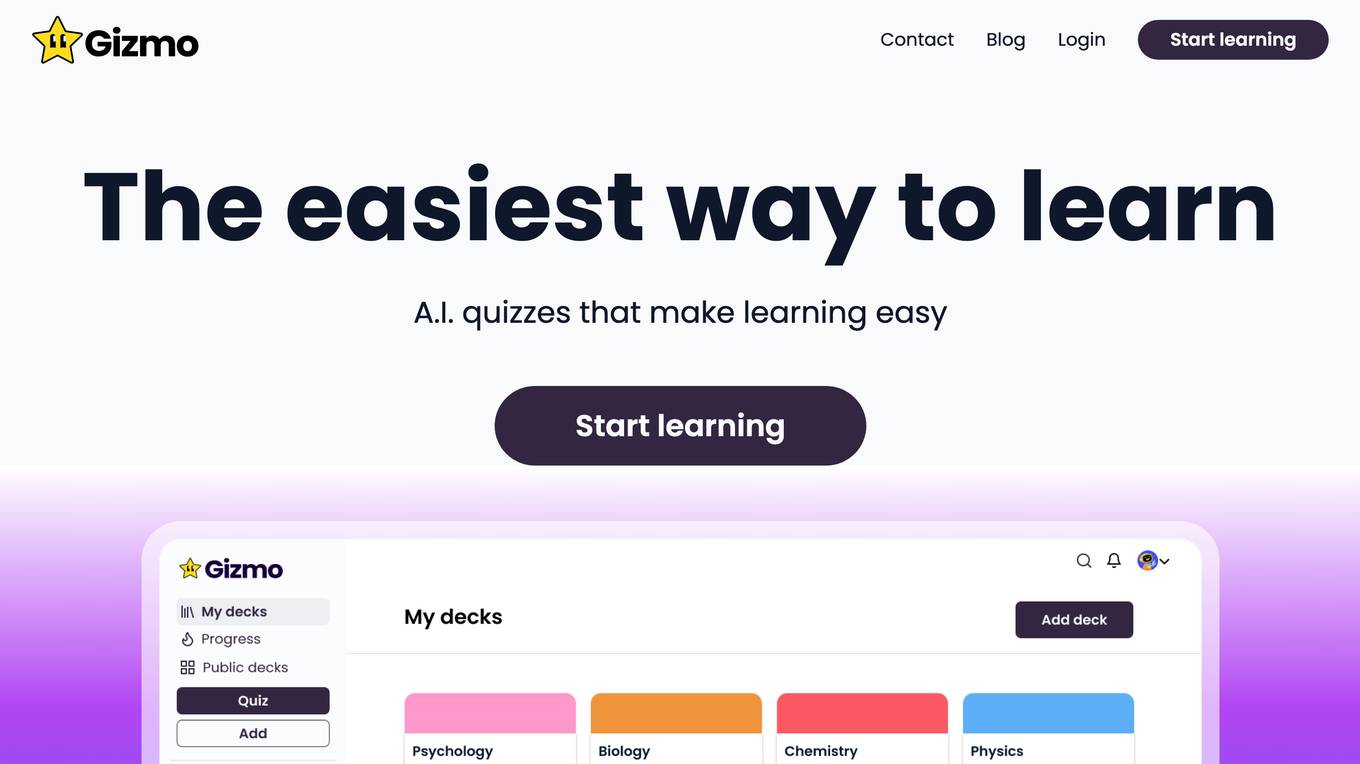
Gizmo
Gizmo is an AI-powered learning application designed to make studying easy and enjoyable for students of all levels. It offers A.I. quizzes that help users learn and retain information effectively. The app is created by Cambridge alumni and has gained popularity among students for its innovative approach to learning. With features like spaced repetition, active recall, and the ability to turn study materials into flashcards, Gizmo aims to enhance the learning experience and improve academic performance.
0 - Open Source AI Tools
17 - OpenAI Gpts
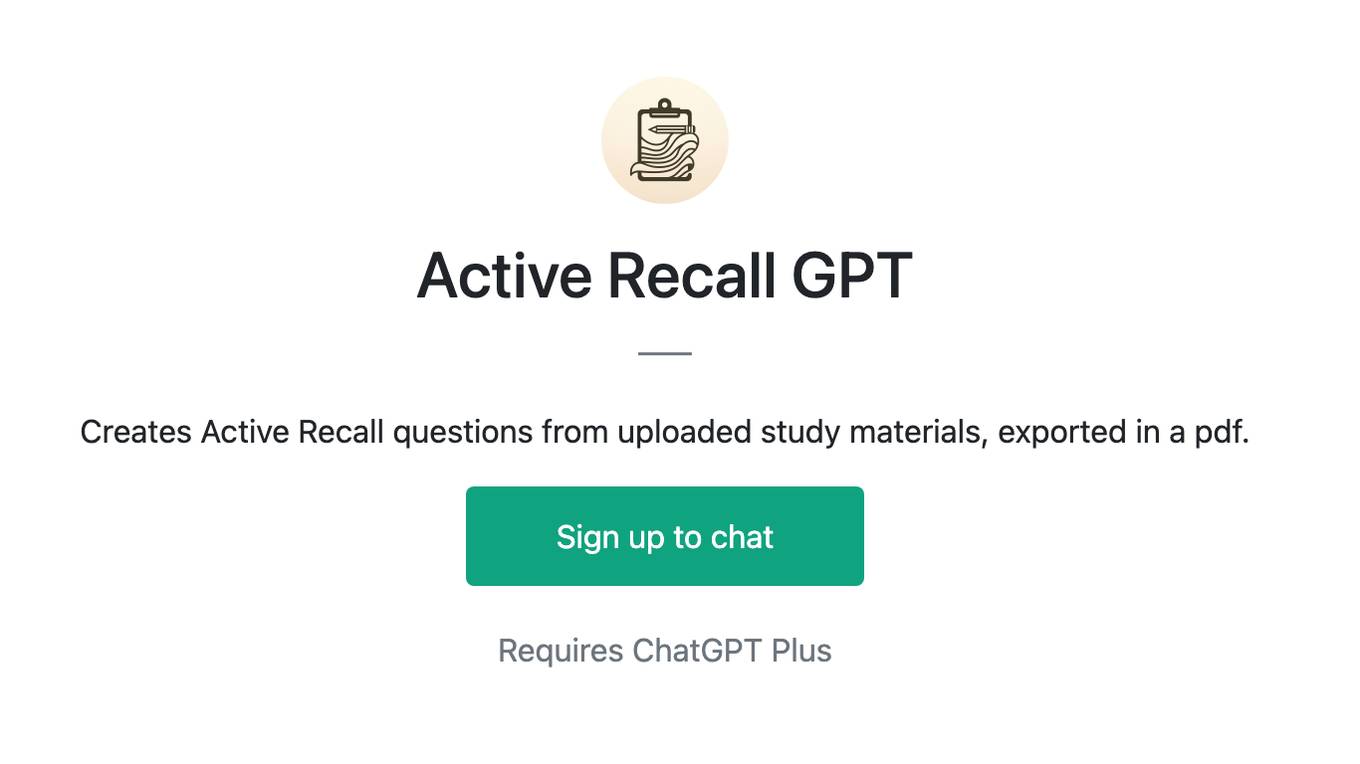
Active Recall GPT
Creates Active Recall questions from uploaded study materials, exported in a pdf.
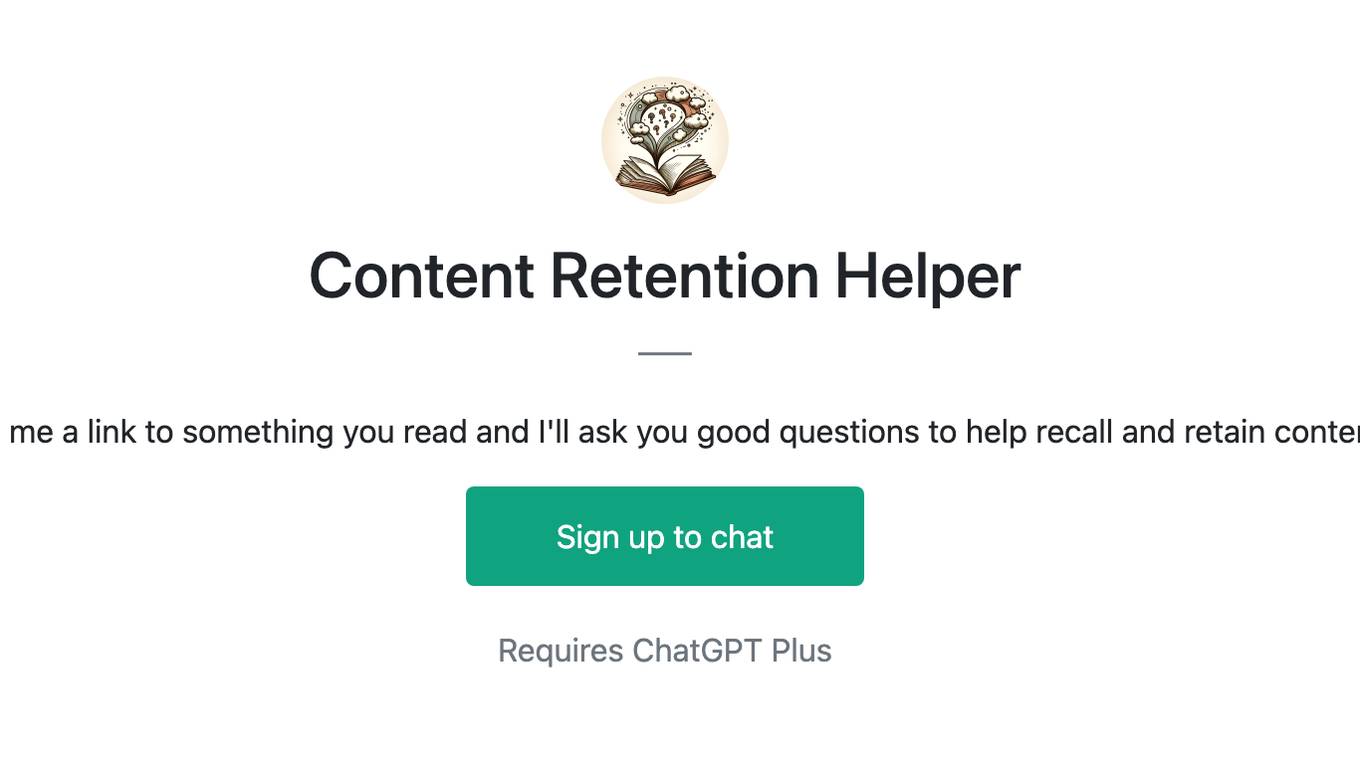
Content Retention Helper
Give me a link to something you read and I'll ask you good questions to help recall and retain content.
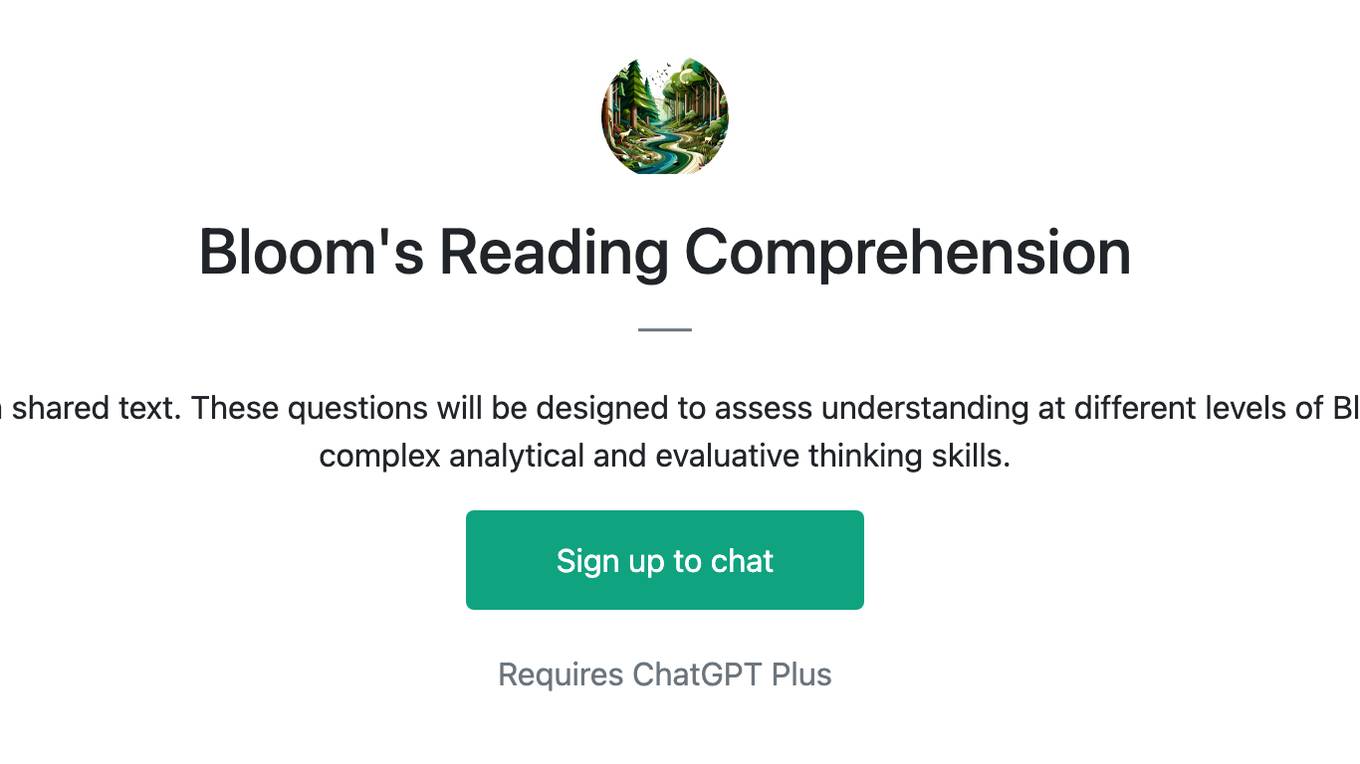
Bloom's Reading Comprehension
Create comprehension questions based on a shared text. These questions will be designed to assess understanding at different levels of Bloom's taxonomy, from basic recall to more complex analytical and evaluative thinking skills.
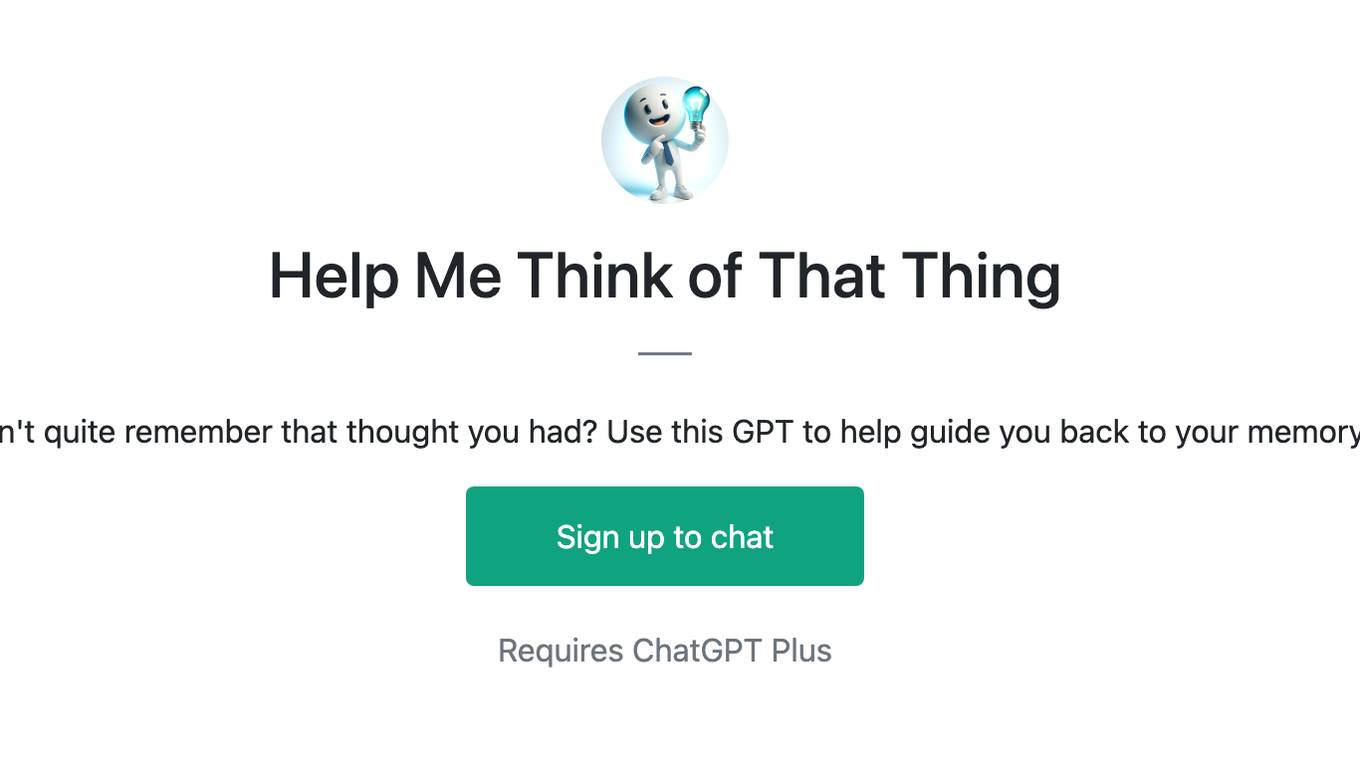
Help Me Think of That Thing
Can't quite remember that thought you had? Use this GPT to help guide you back to your memory.
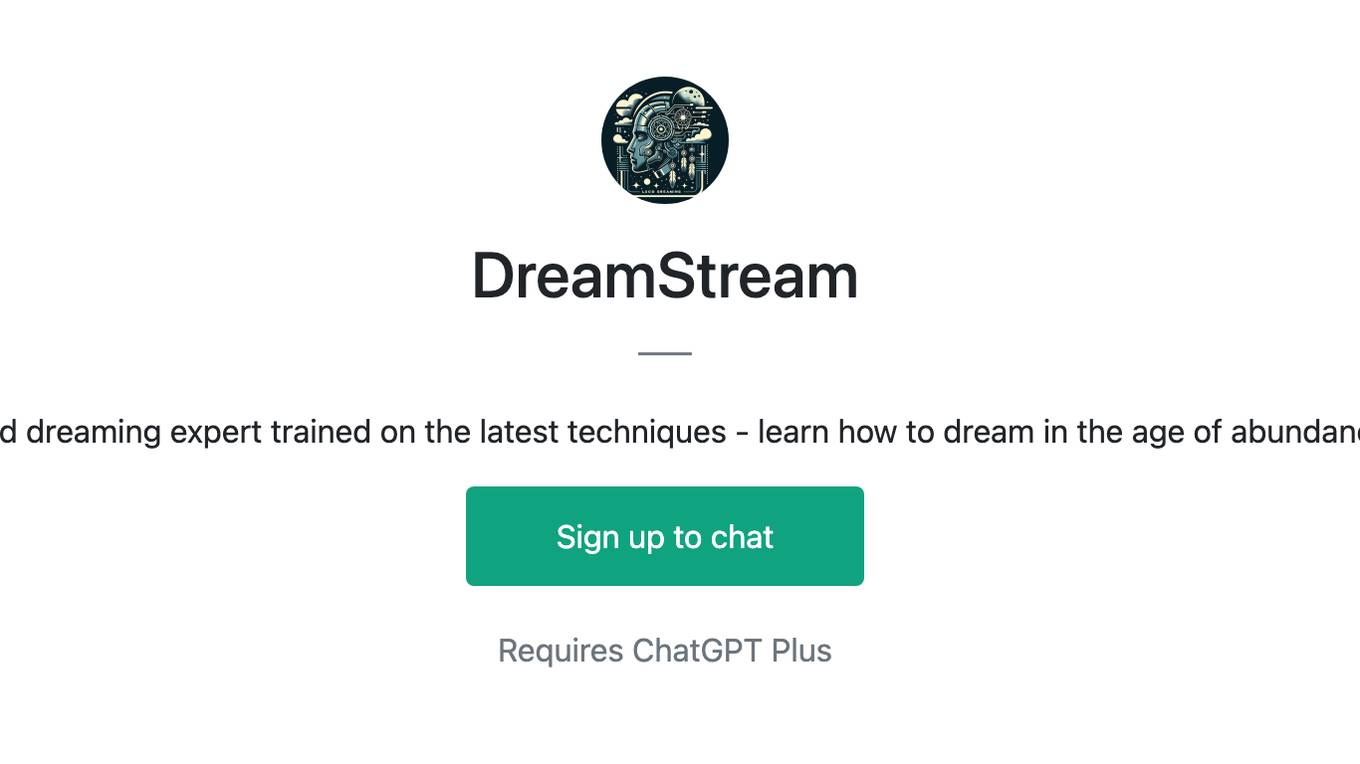
DreamStream
Lucid dreaming expert trained on the latest techniques - learn how to dream in the age of abundance
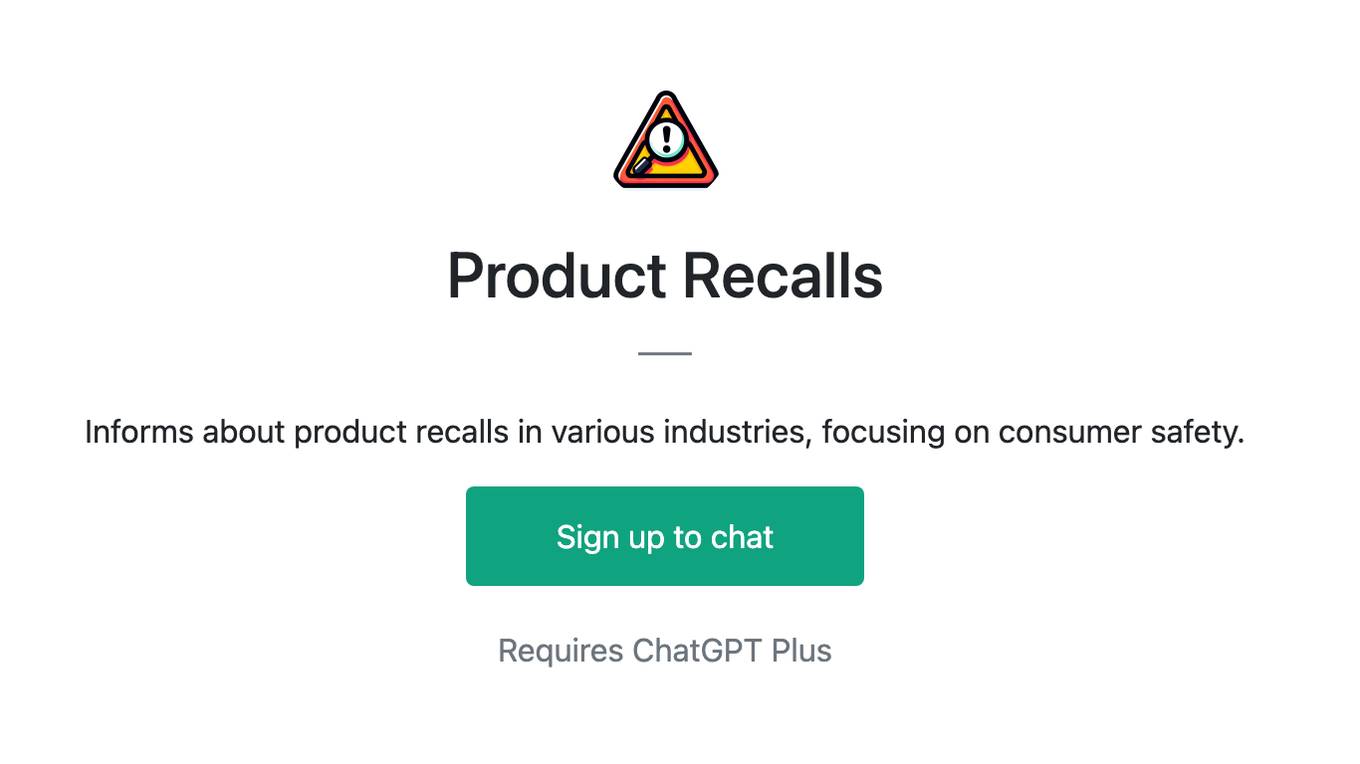
Product Recalls
Informs about product recalls in various industries, focusing on consumer safety.
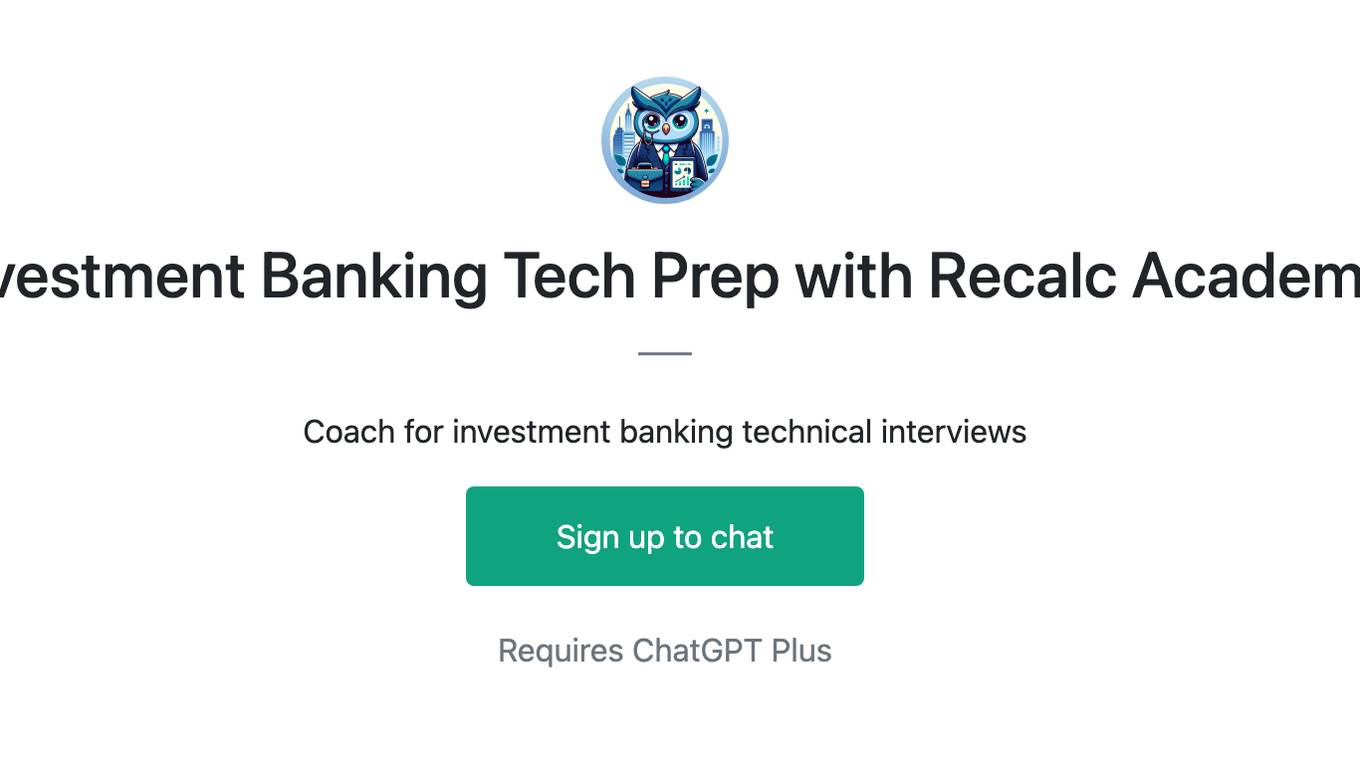
Investment Banking Tech Prep with Recalc Academy
Coach for investment banking technical interviews
